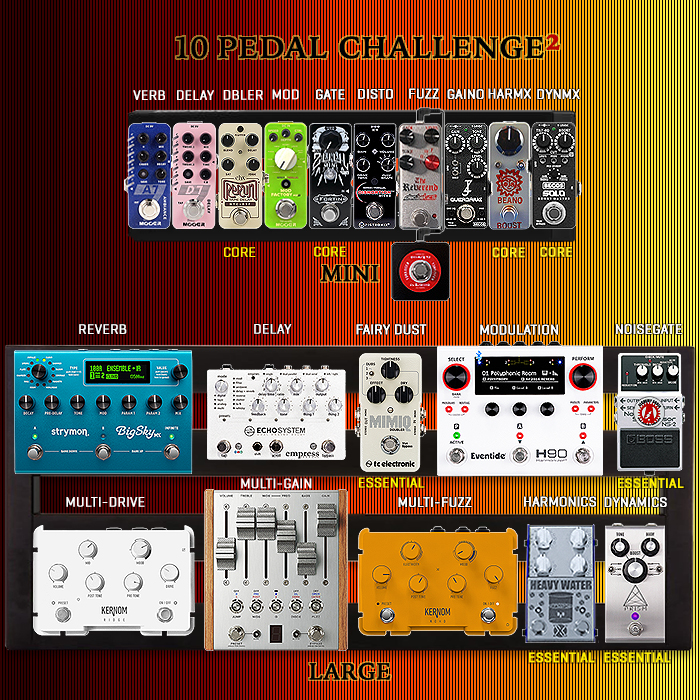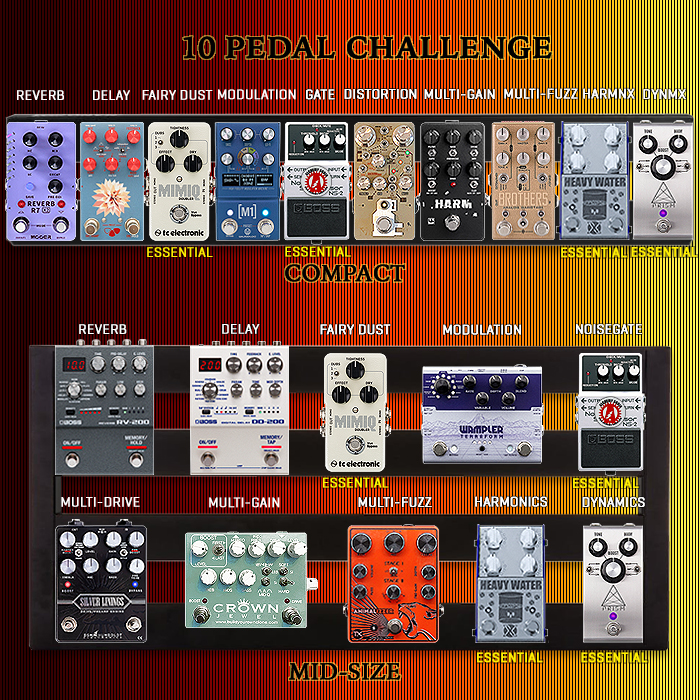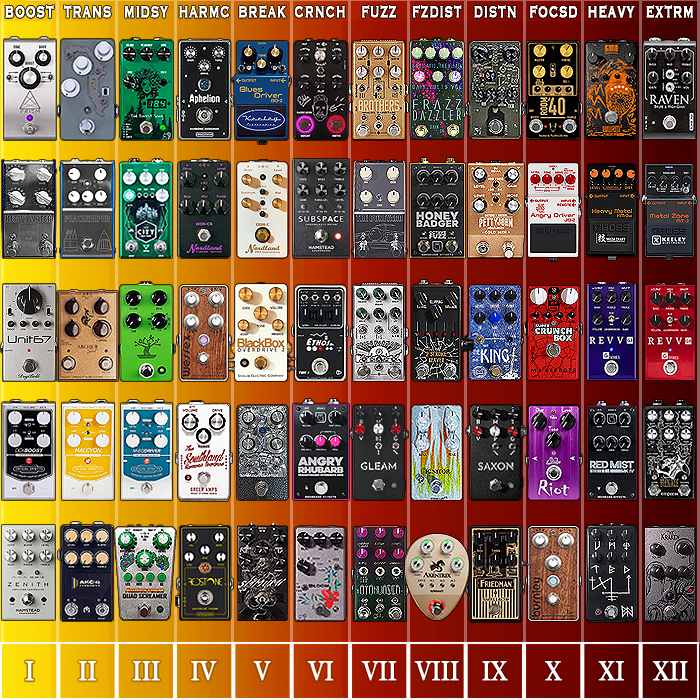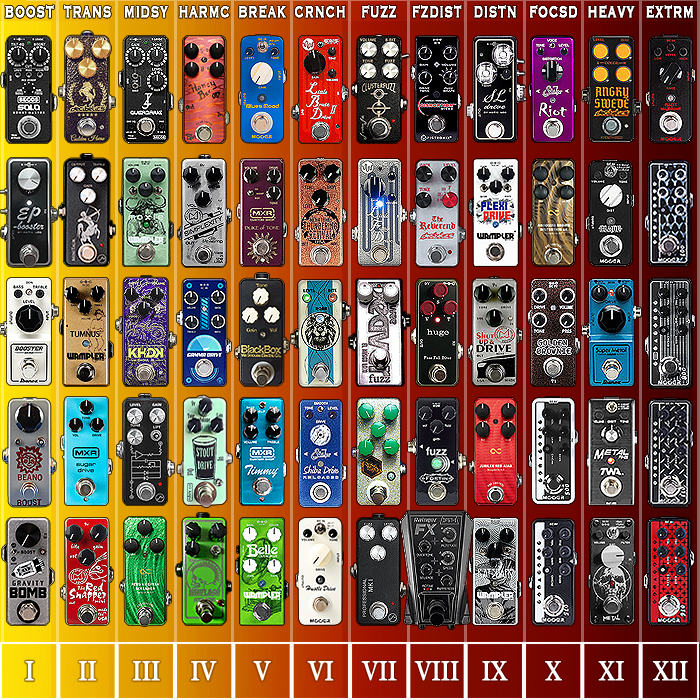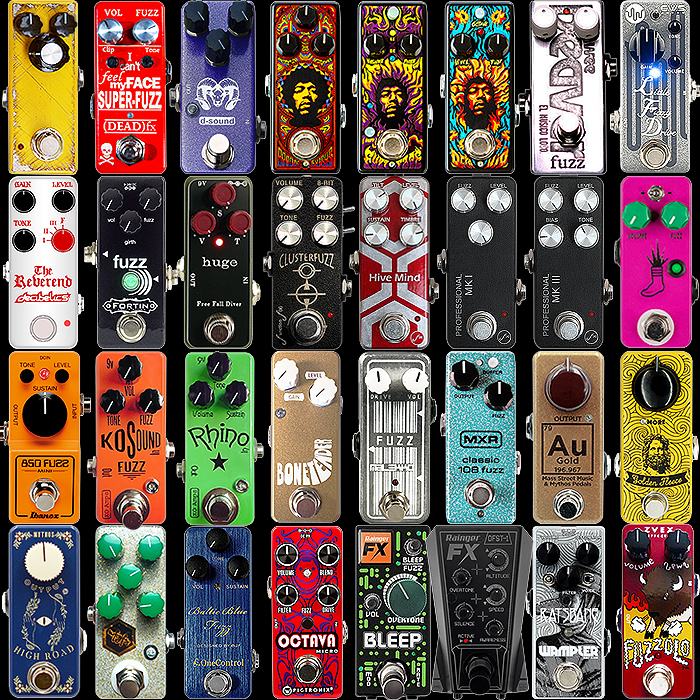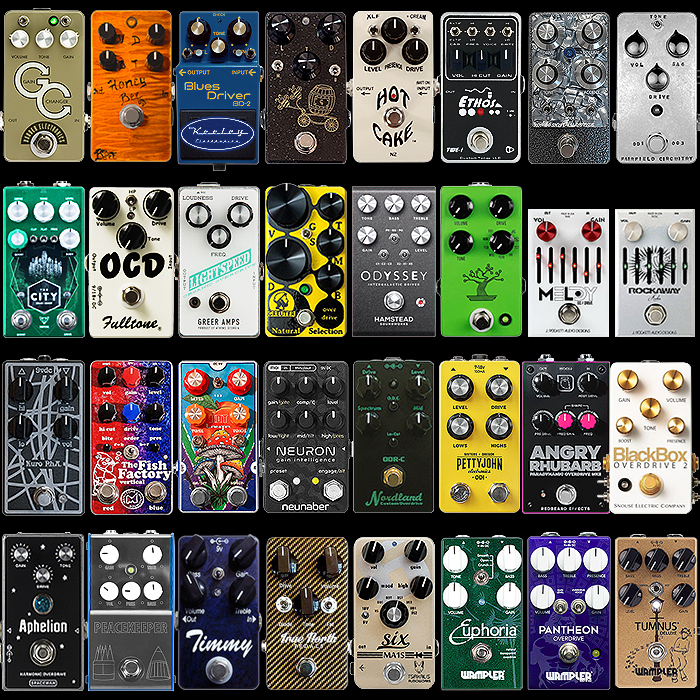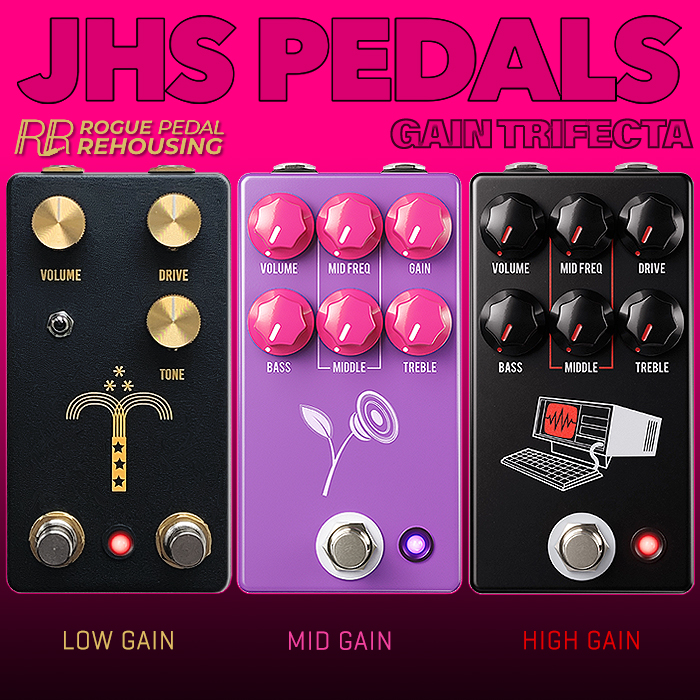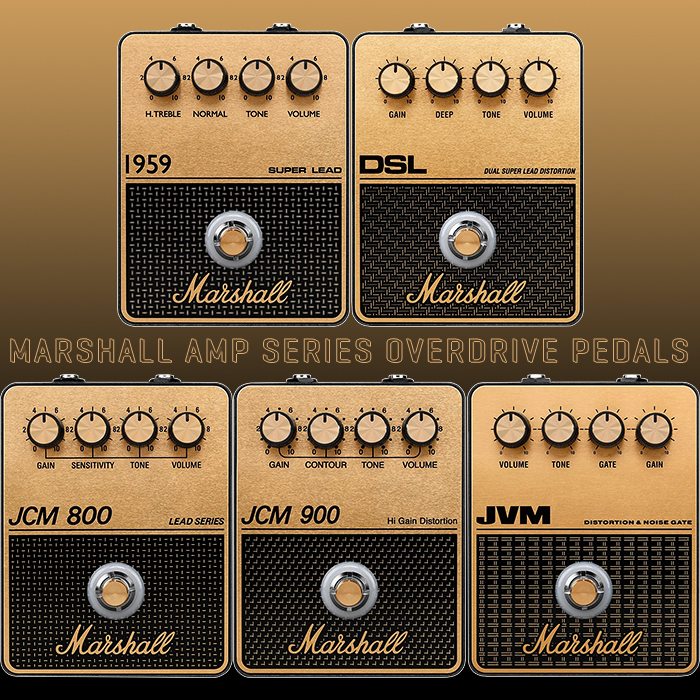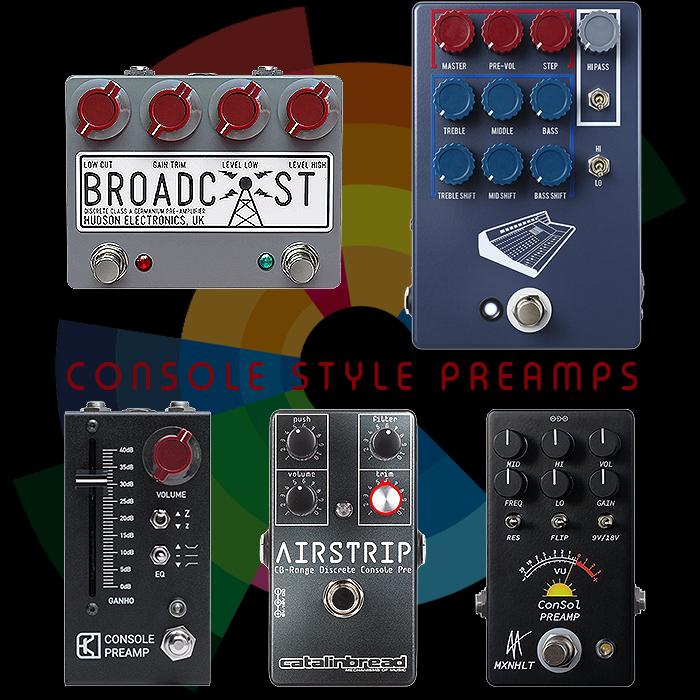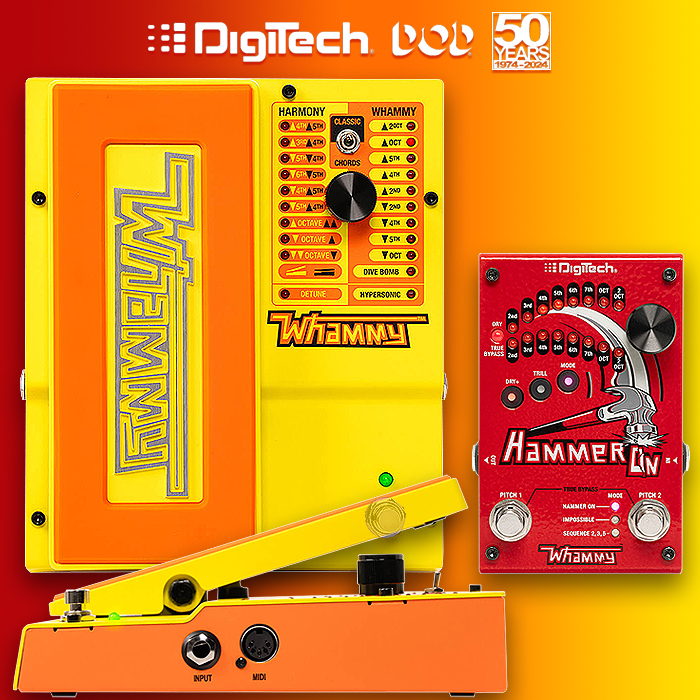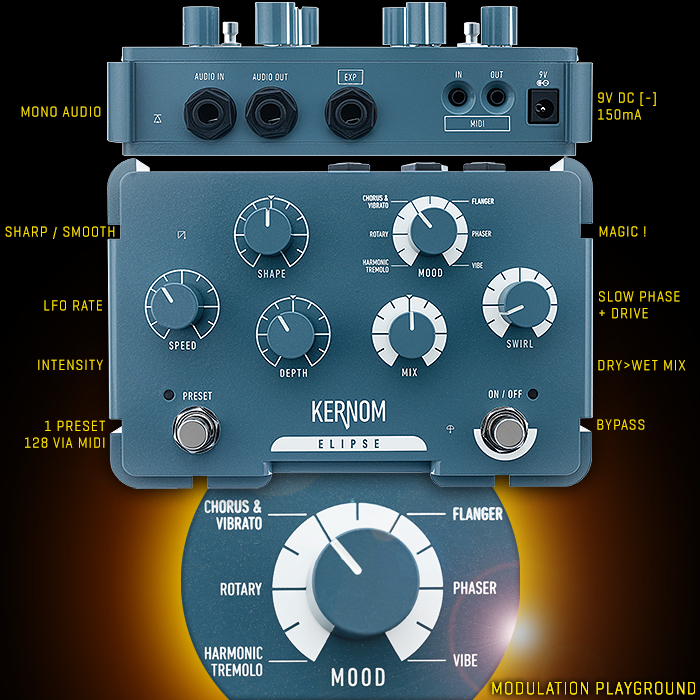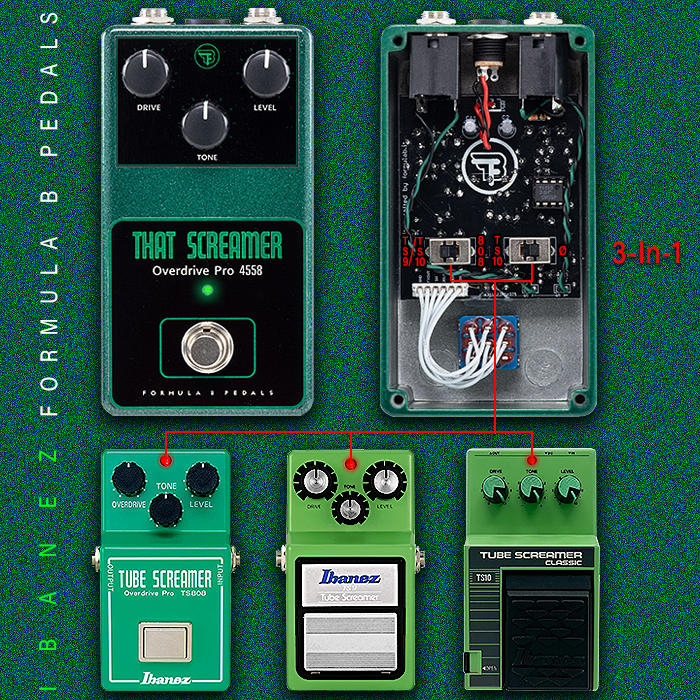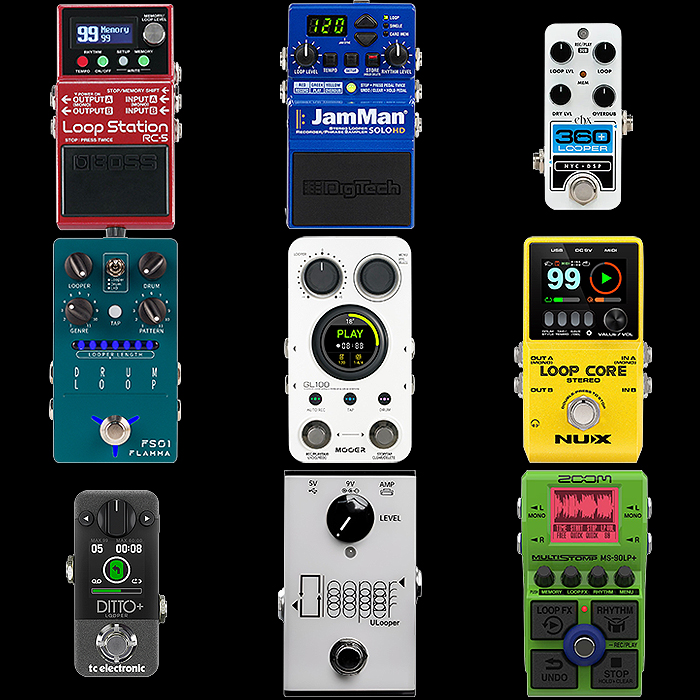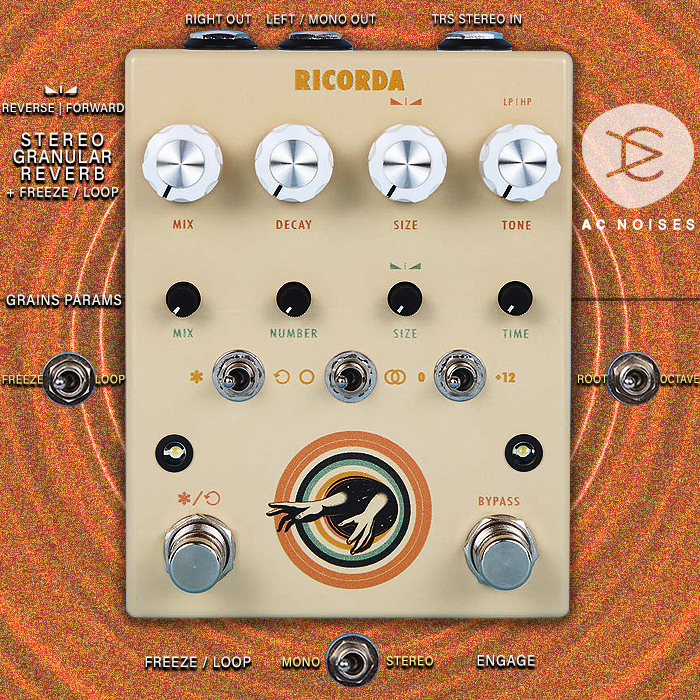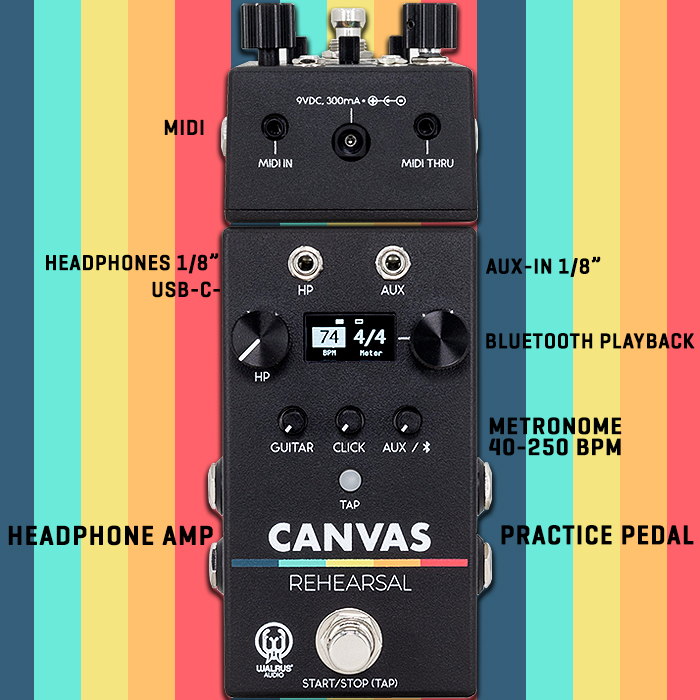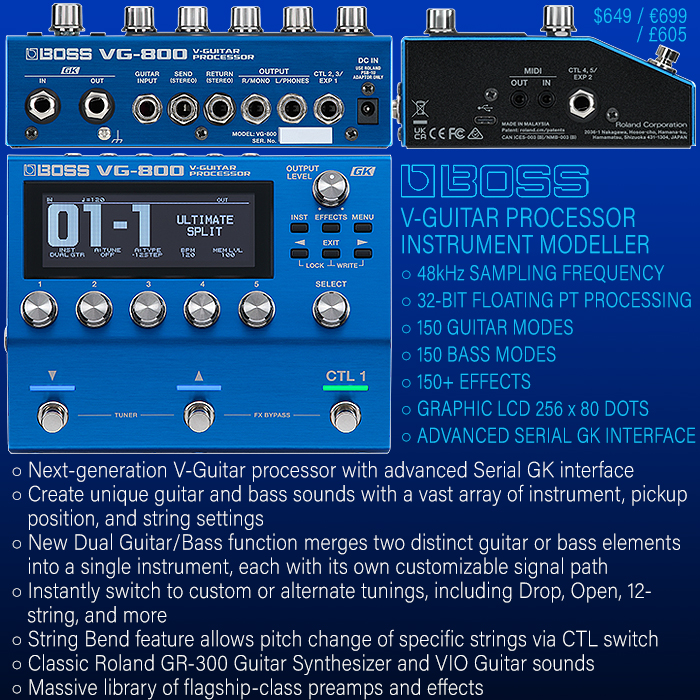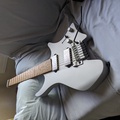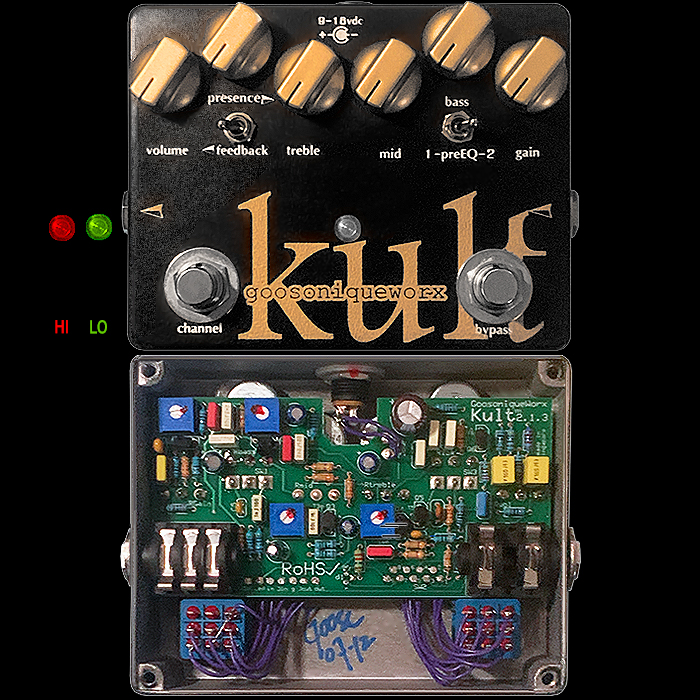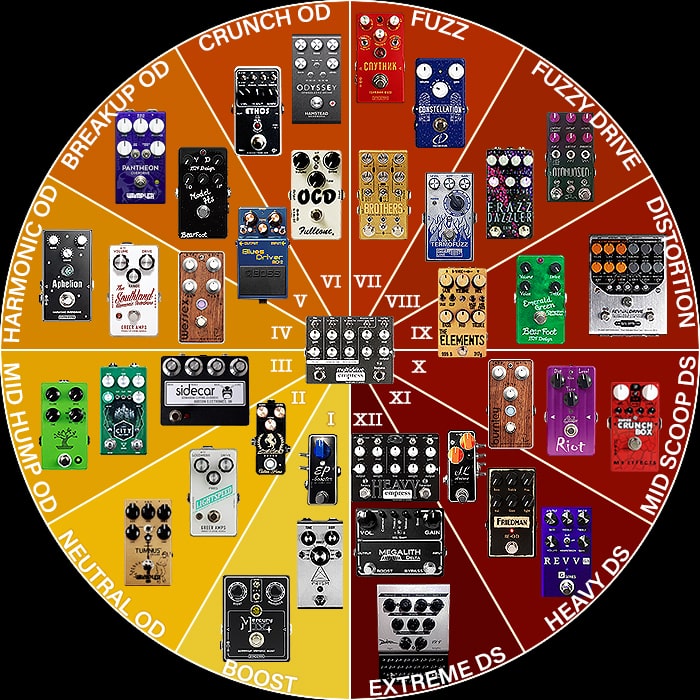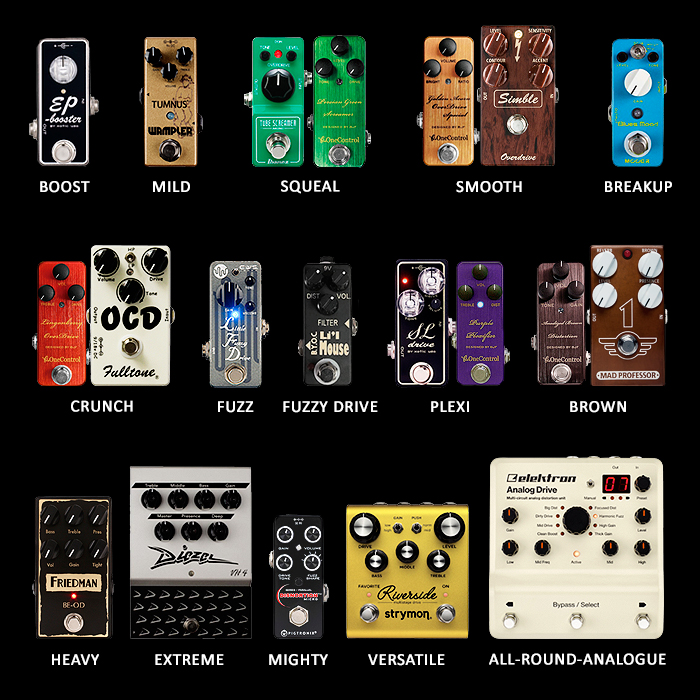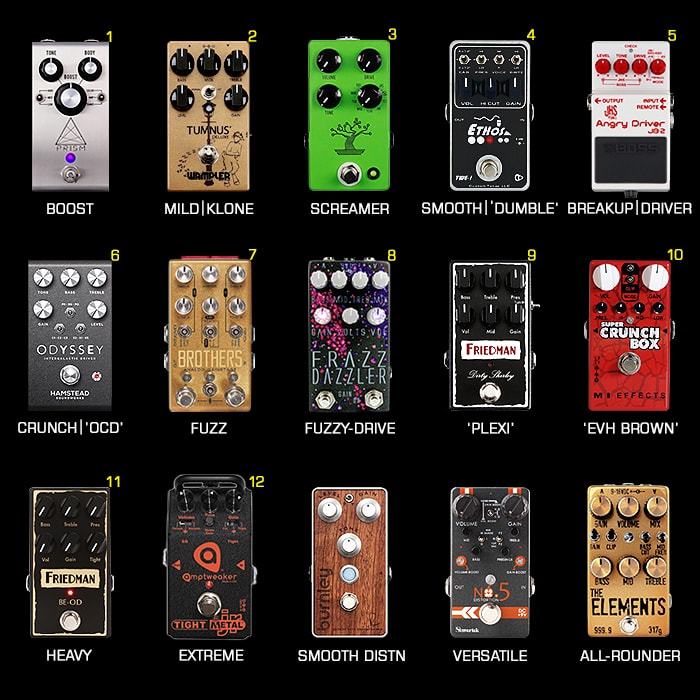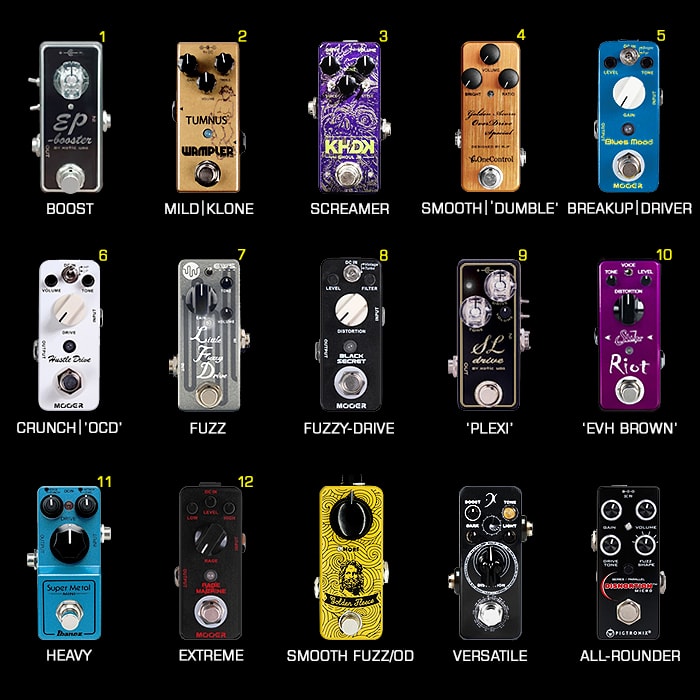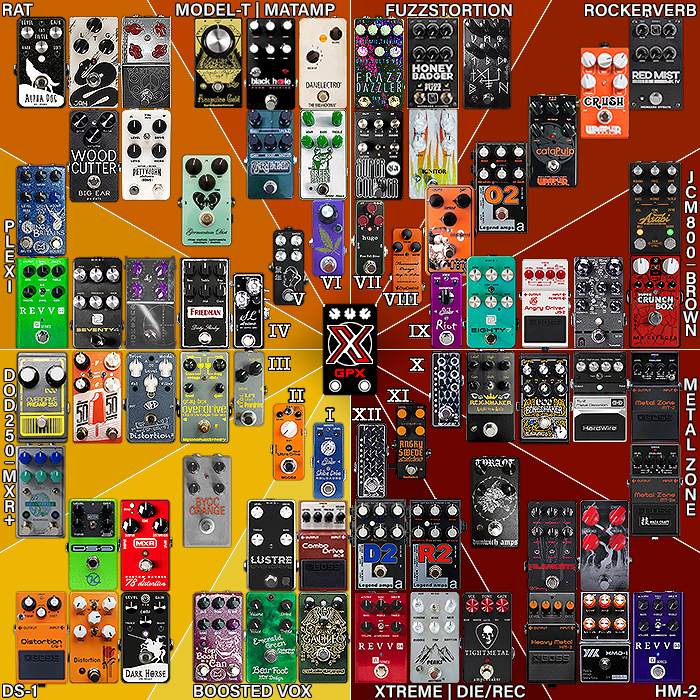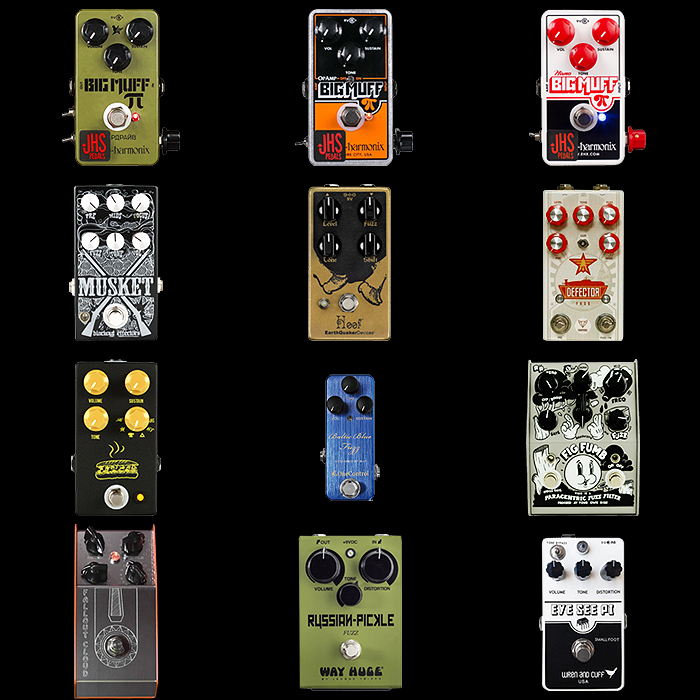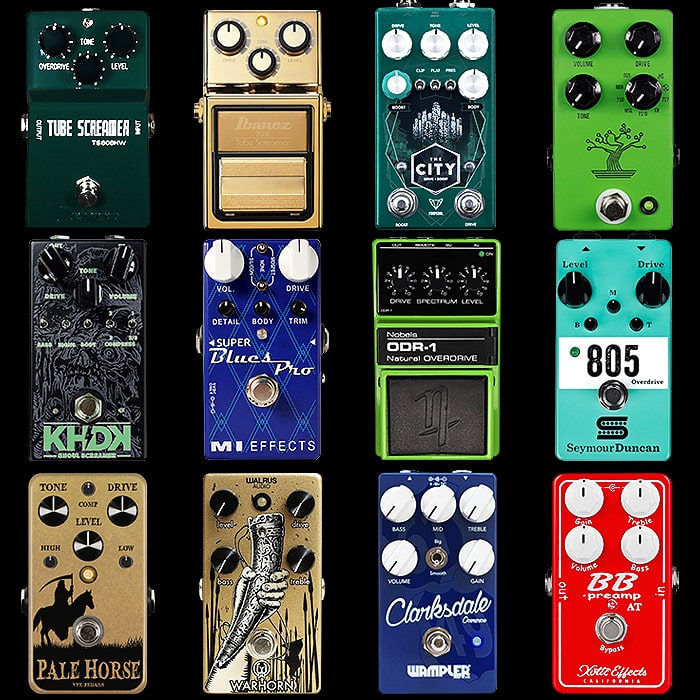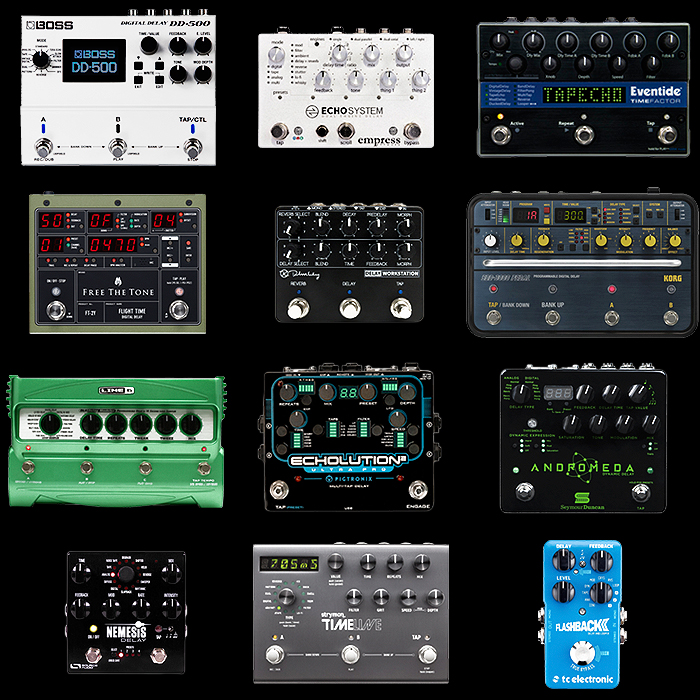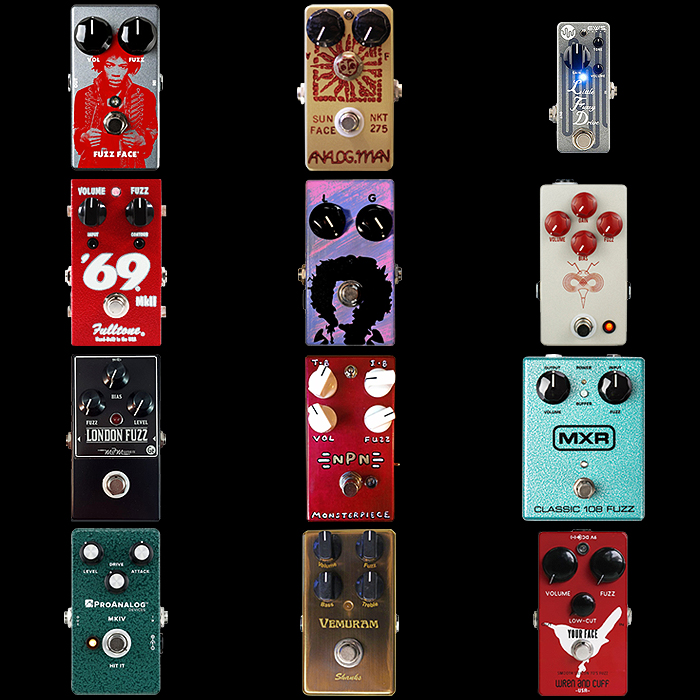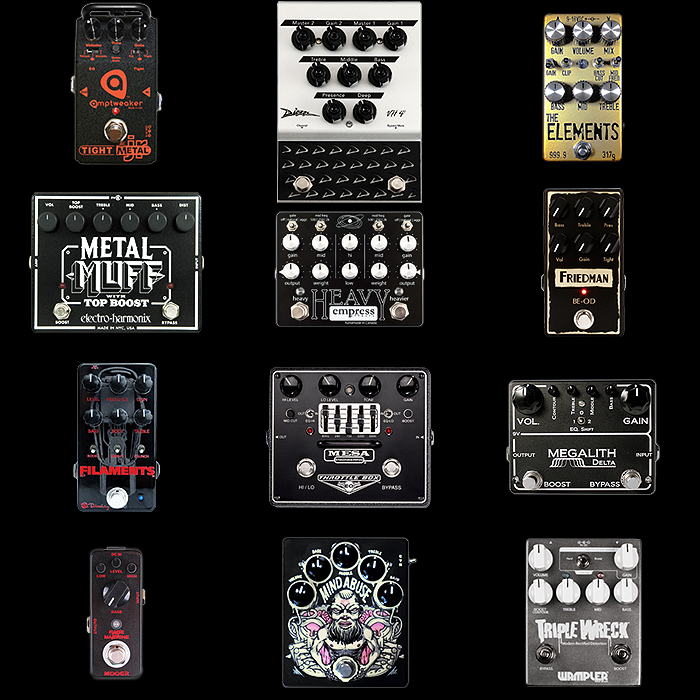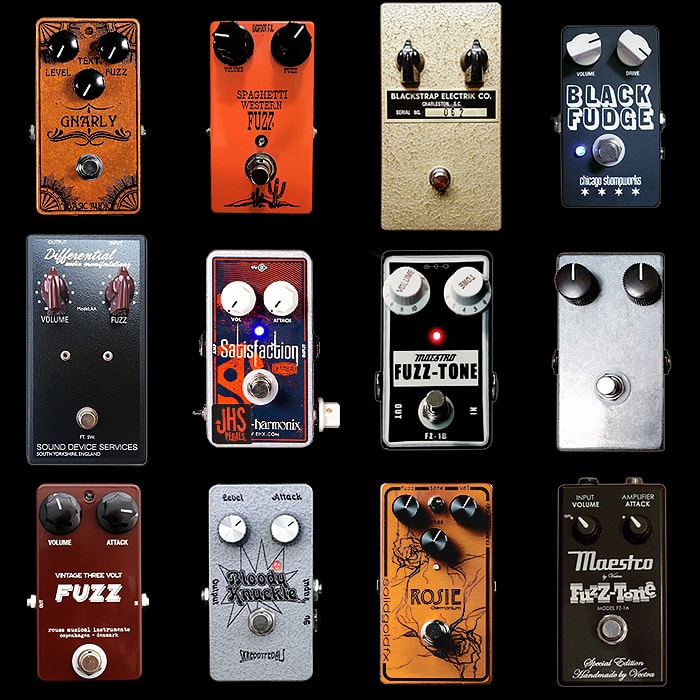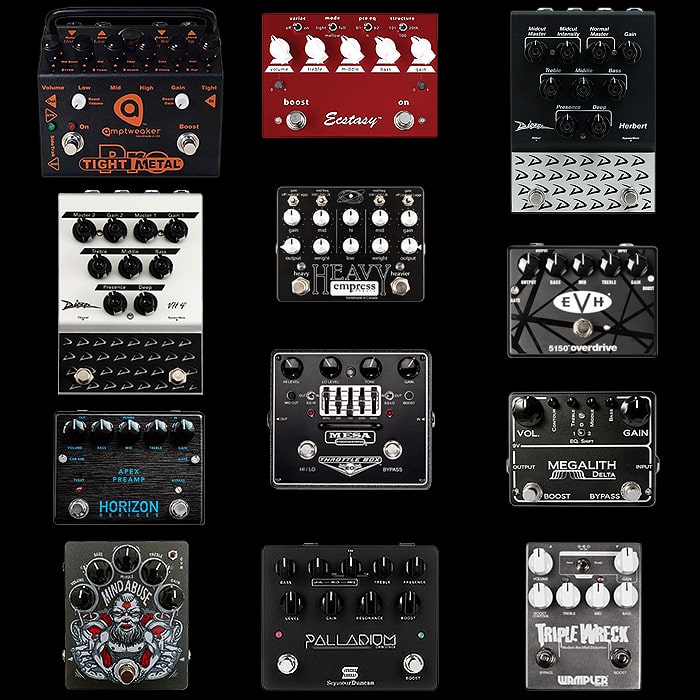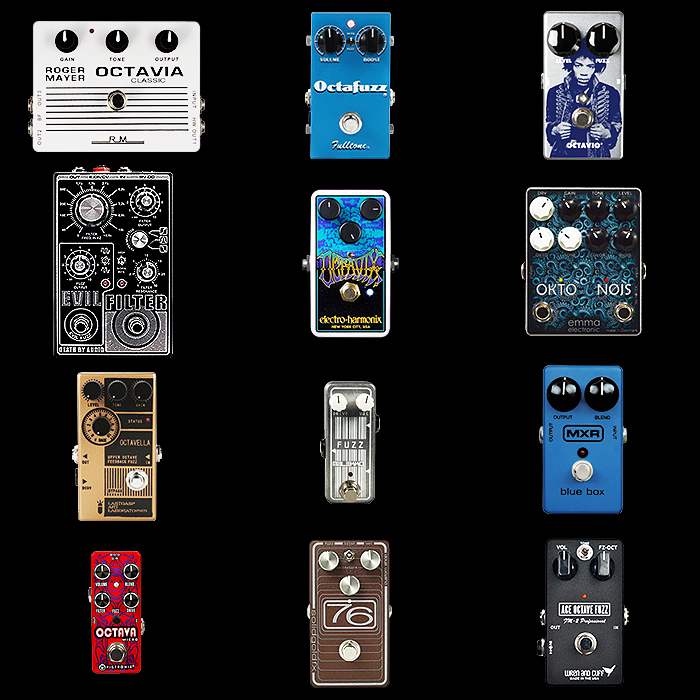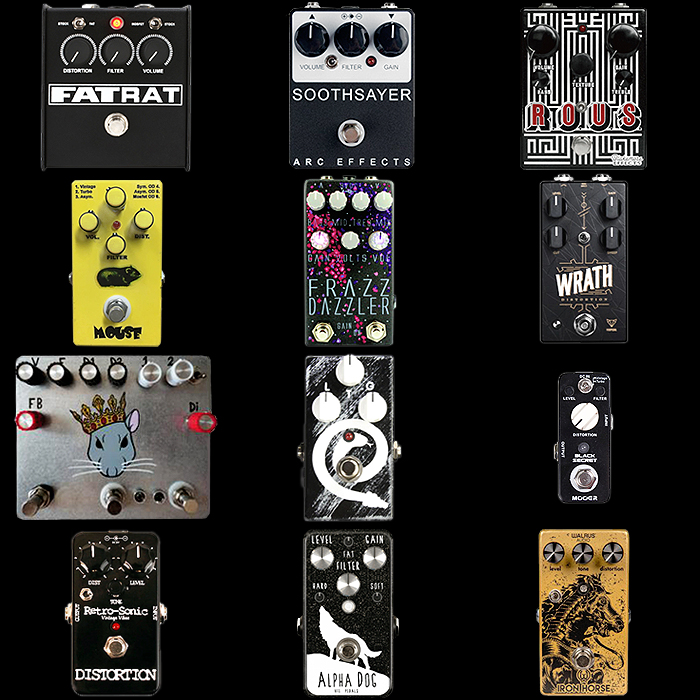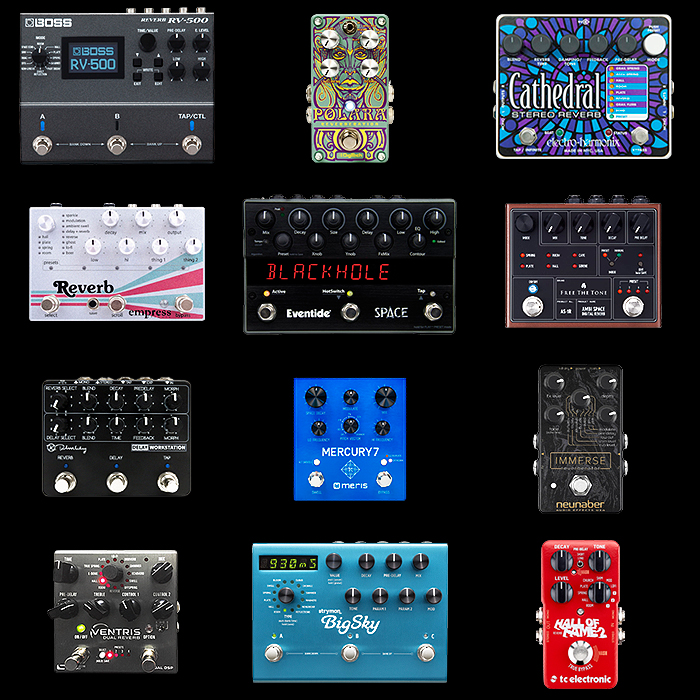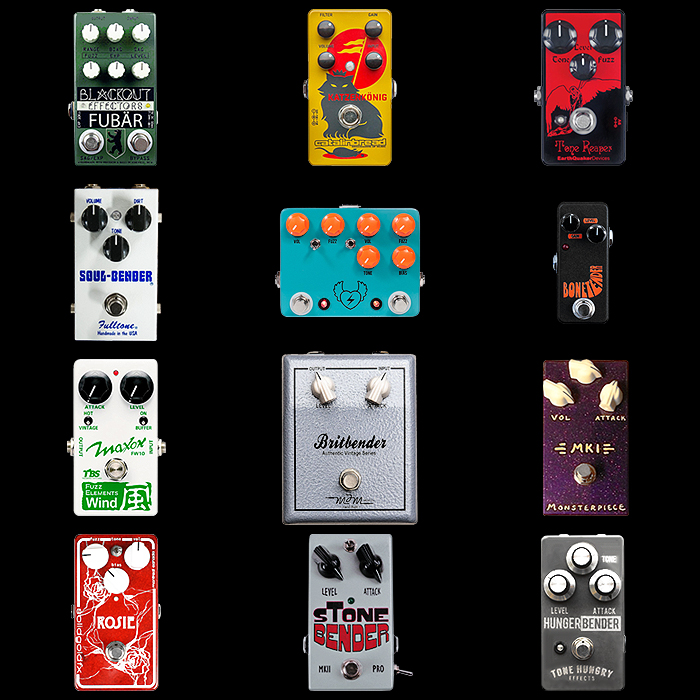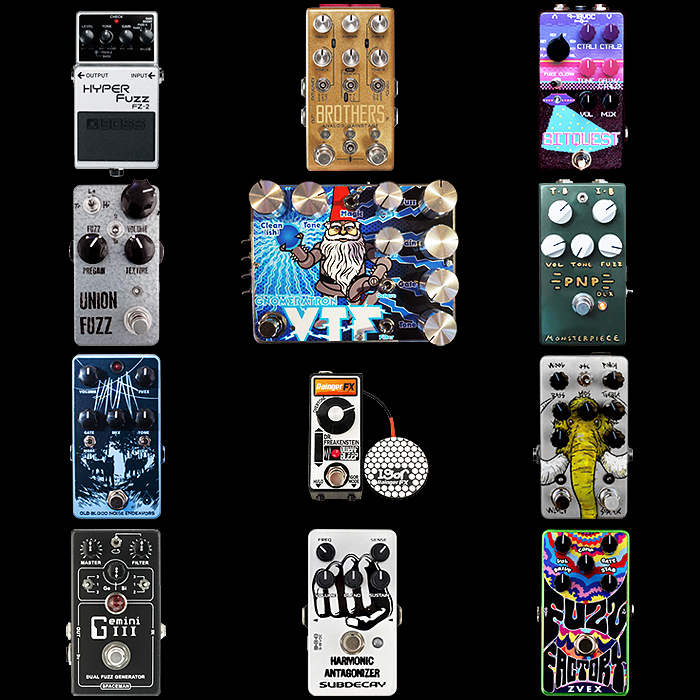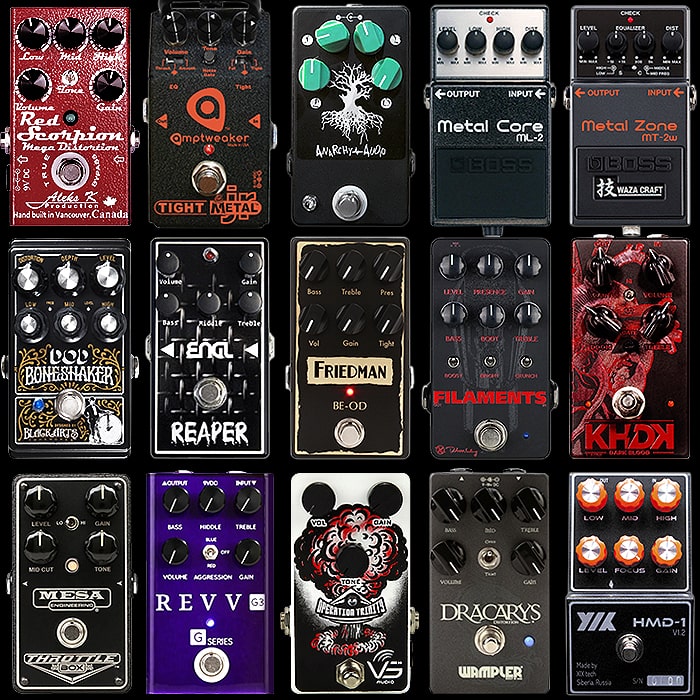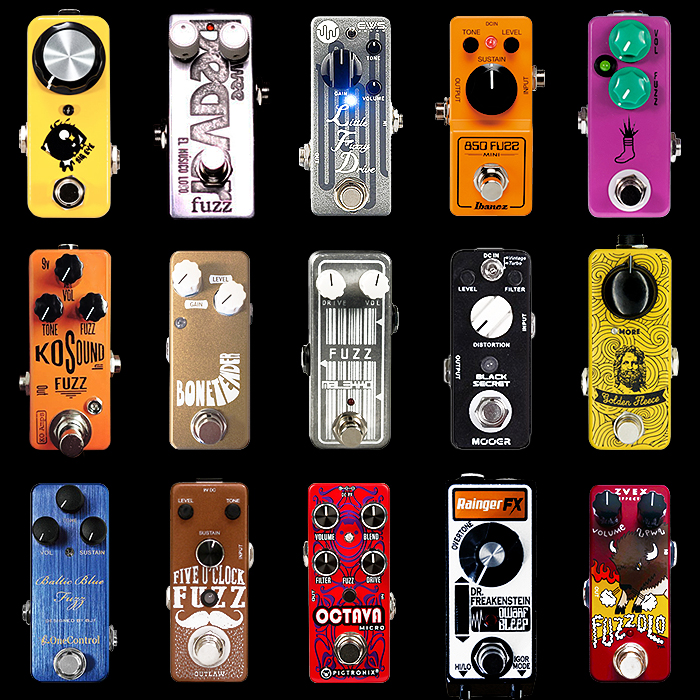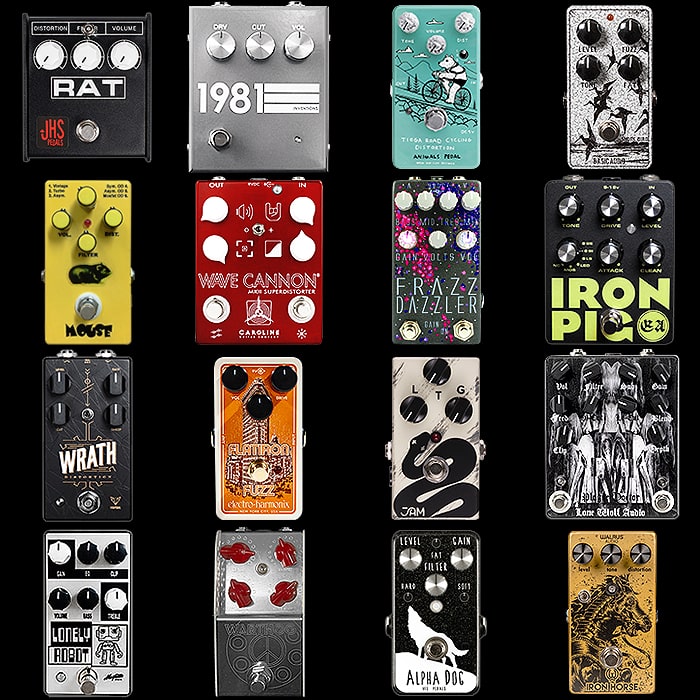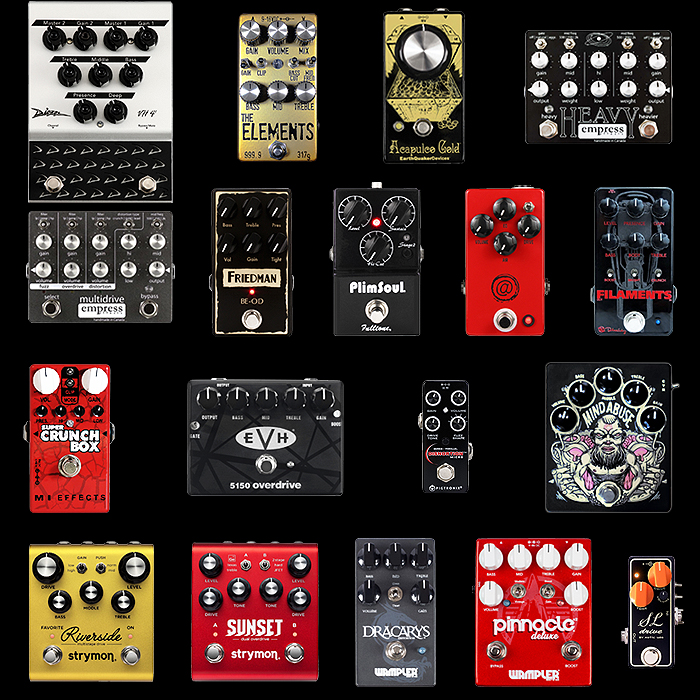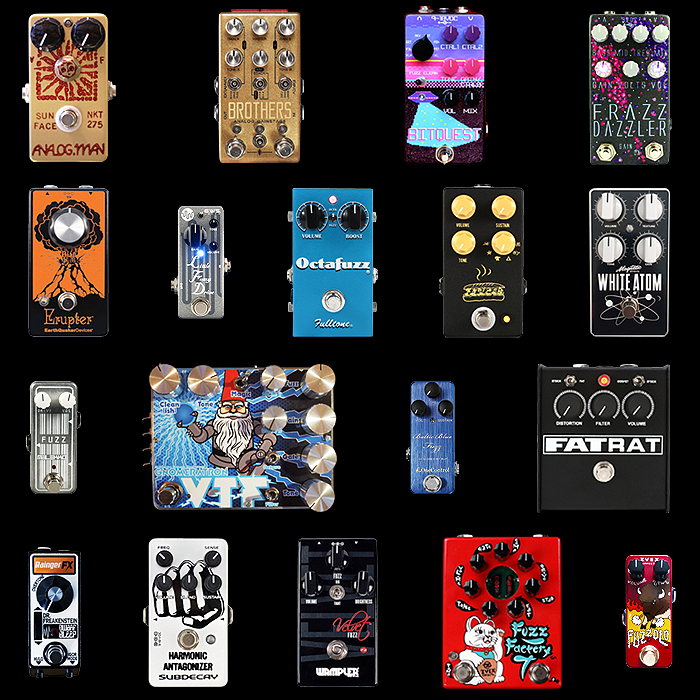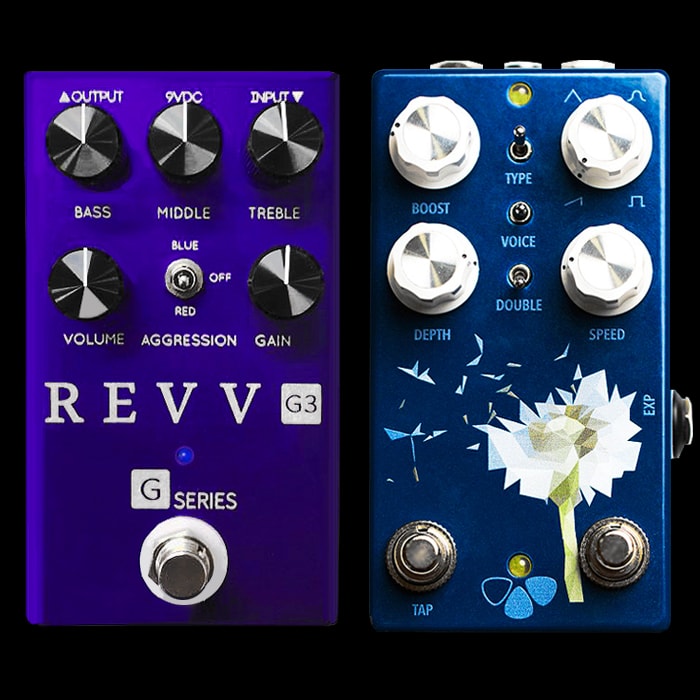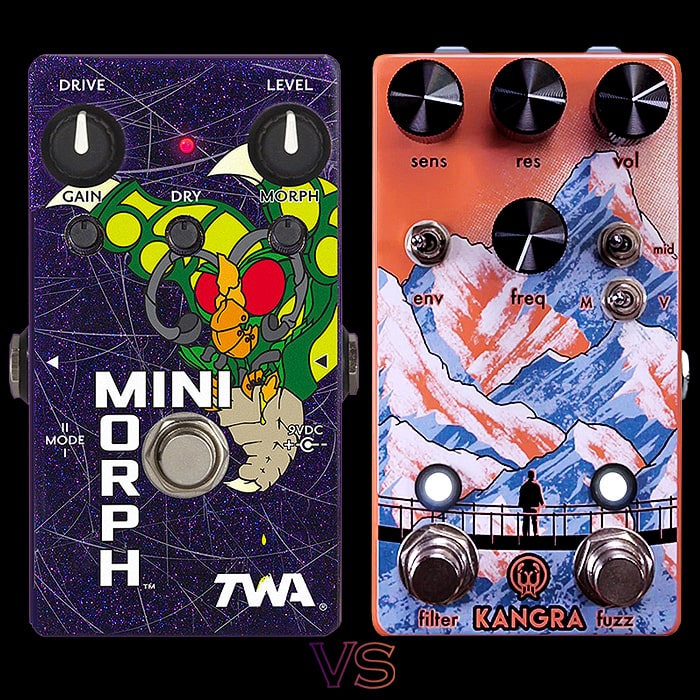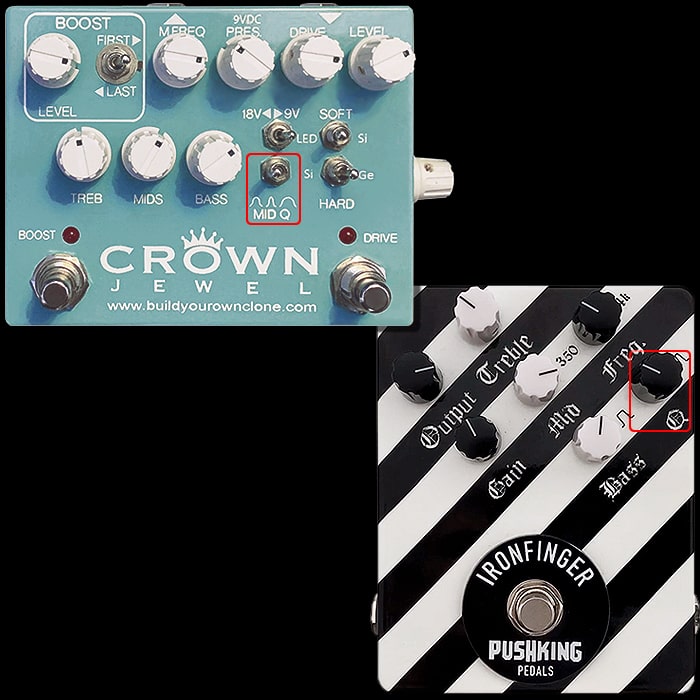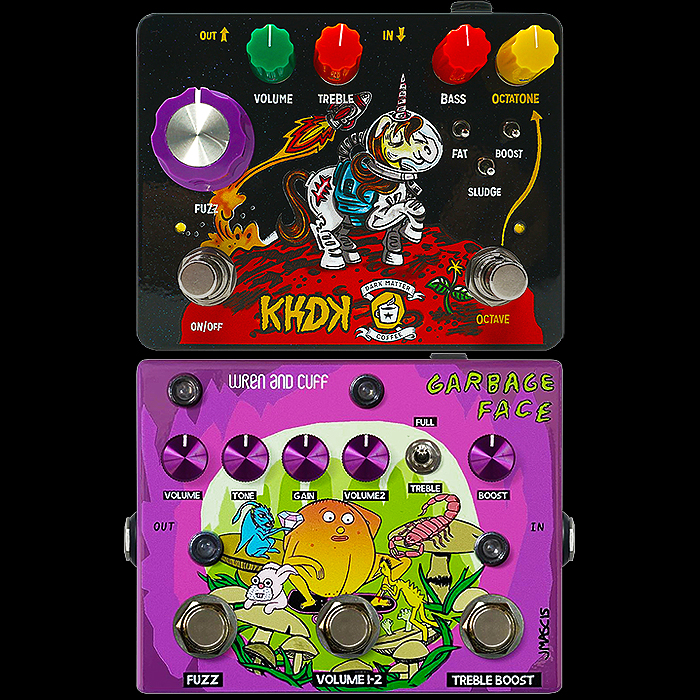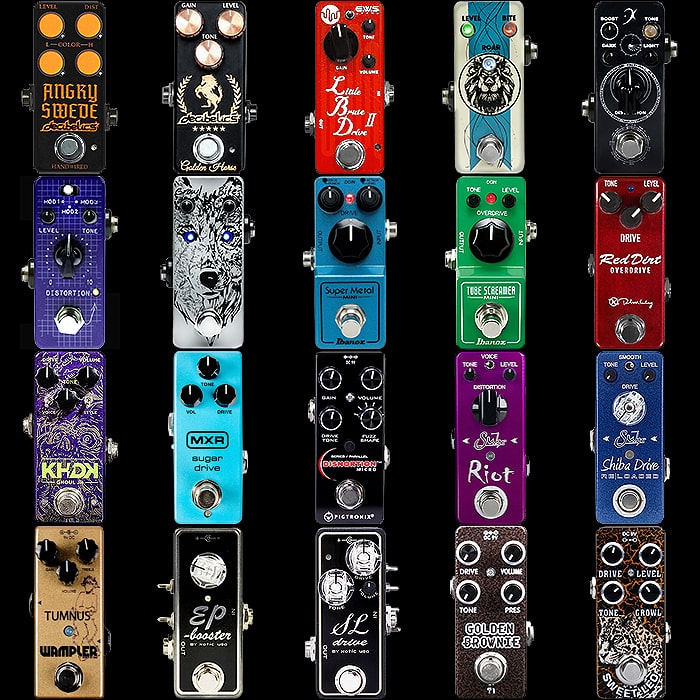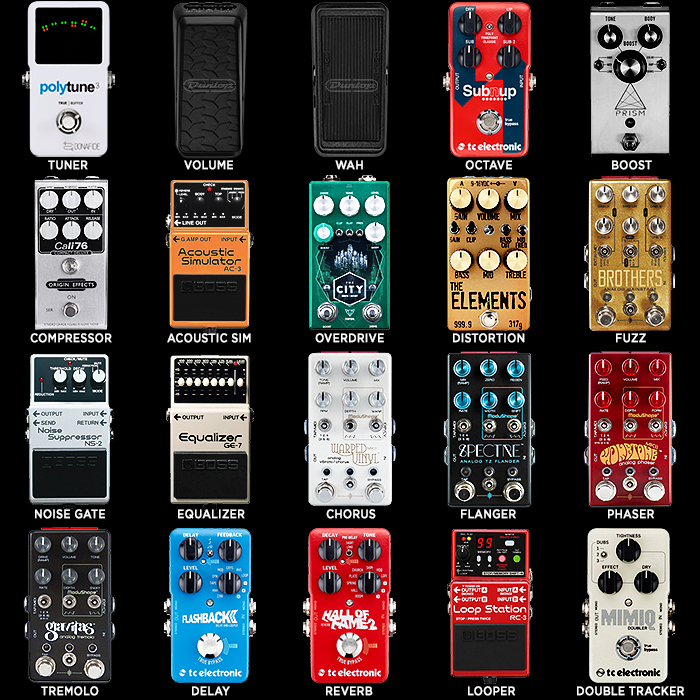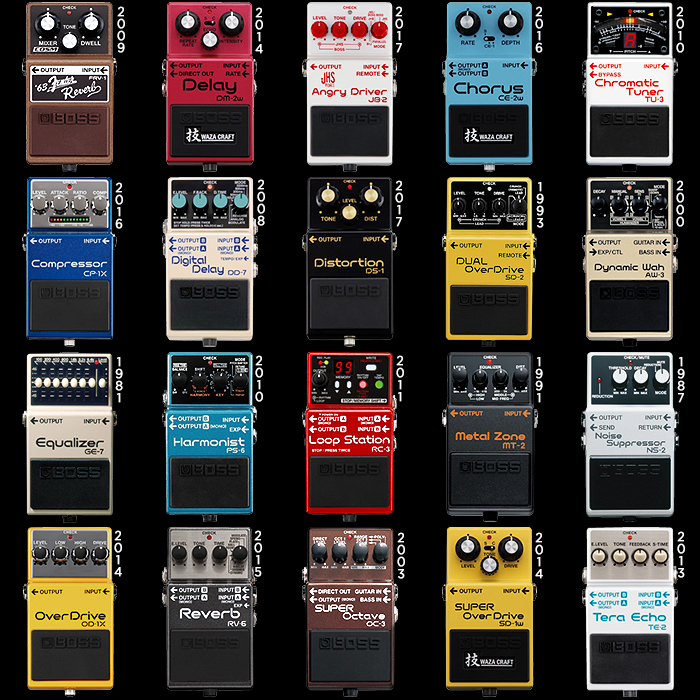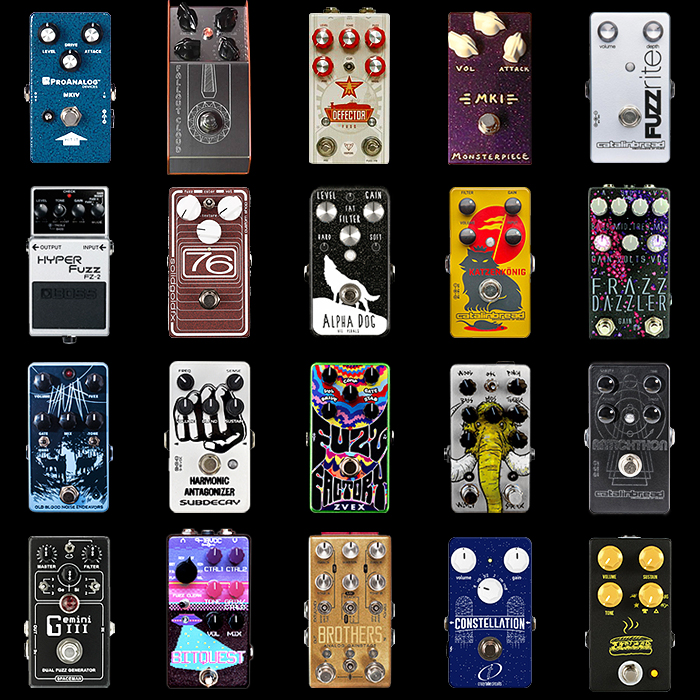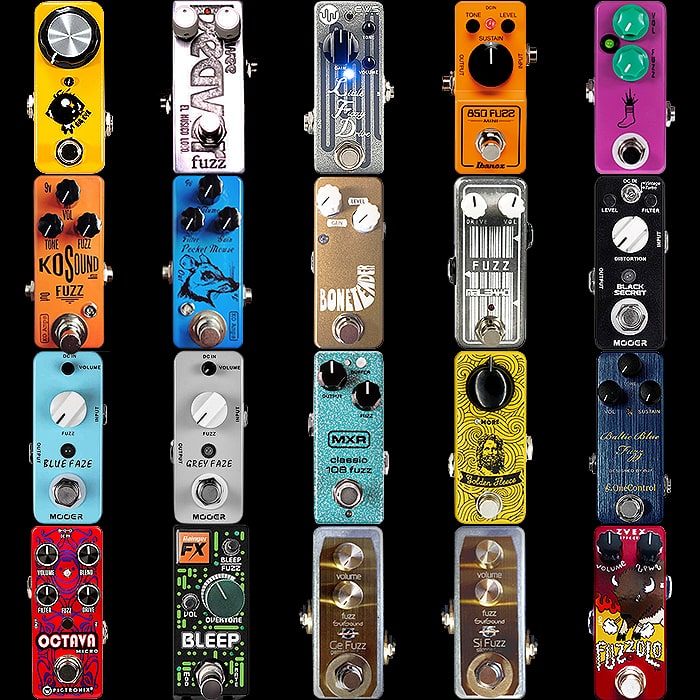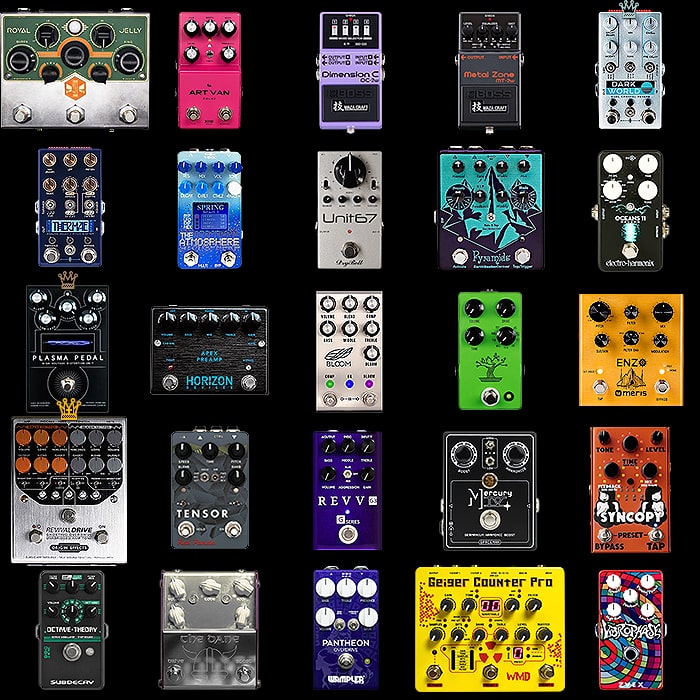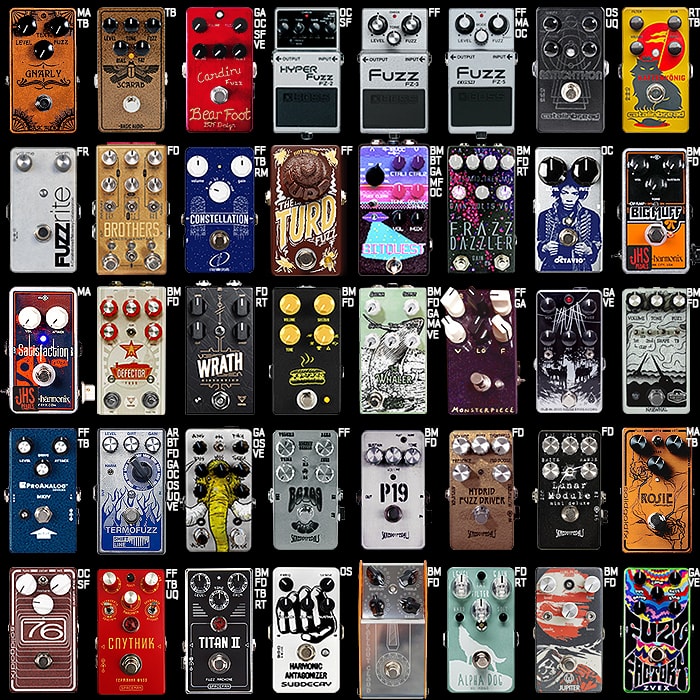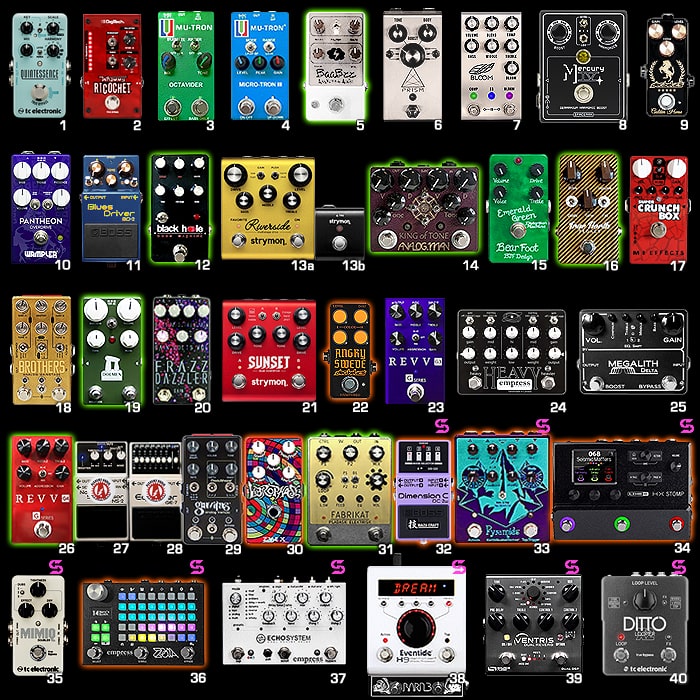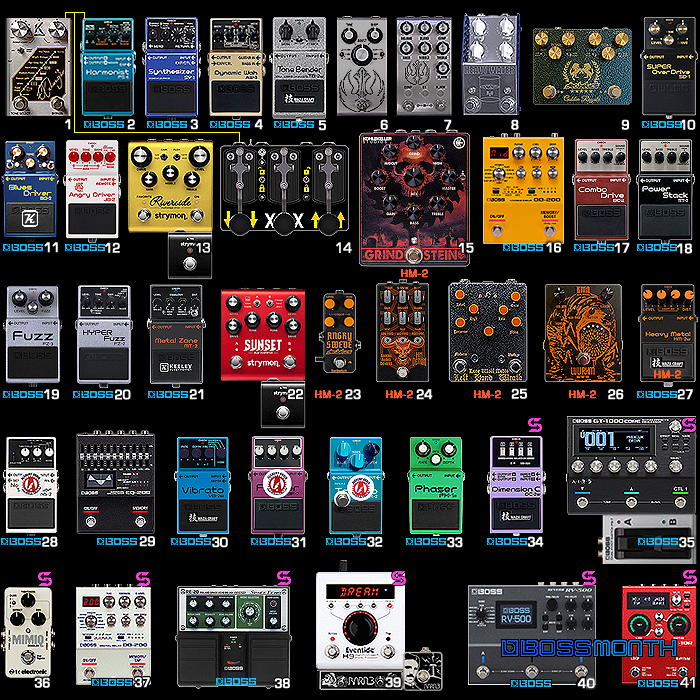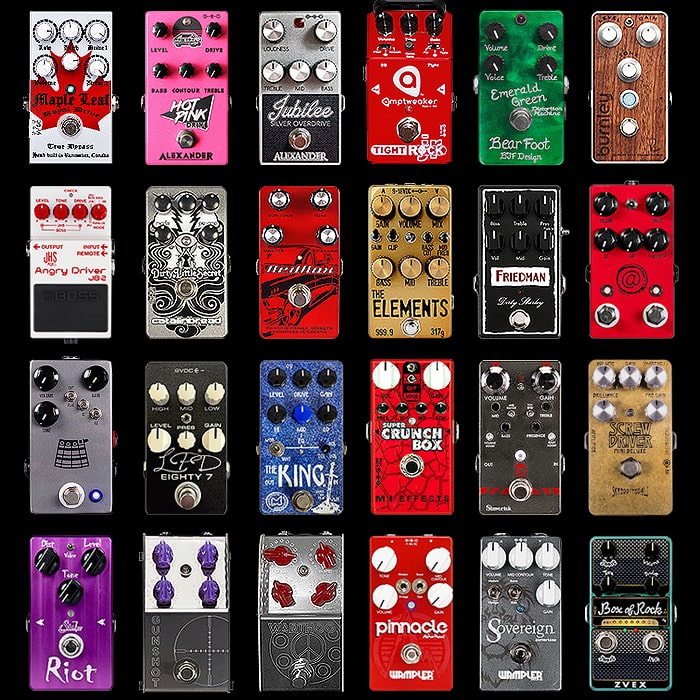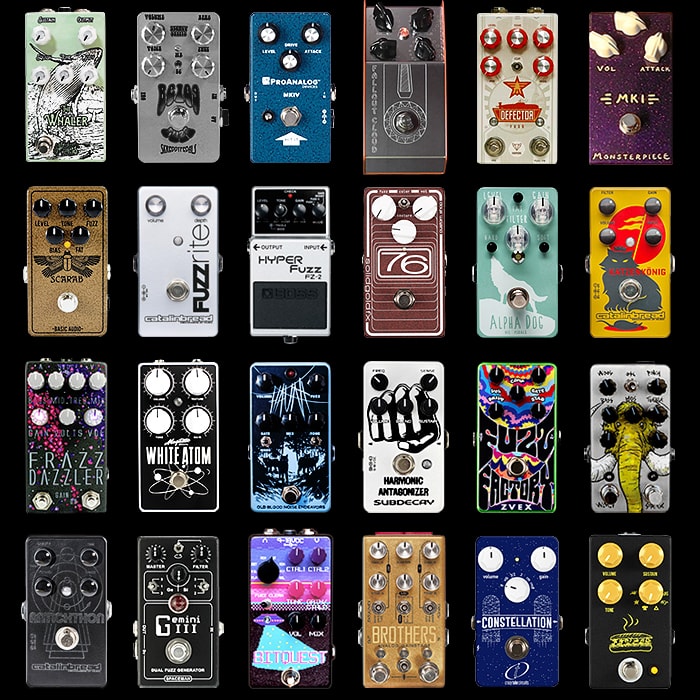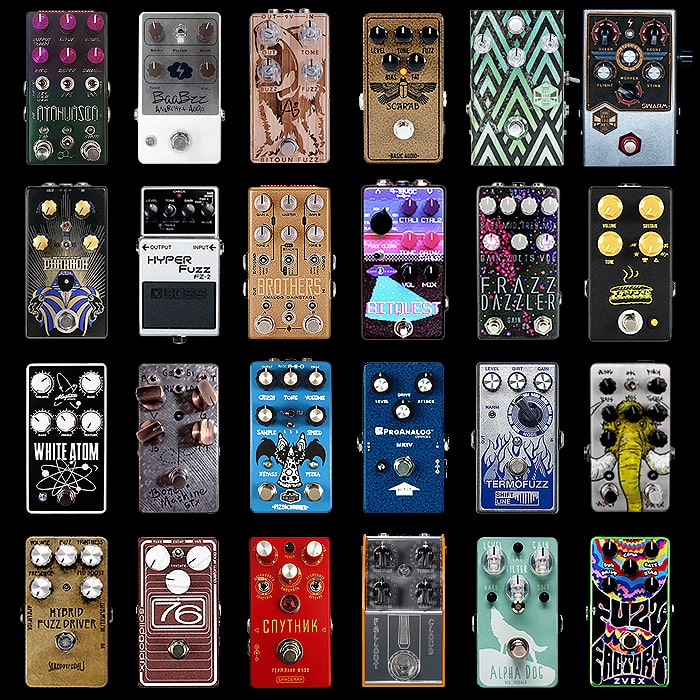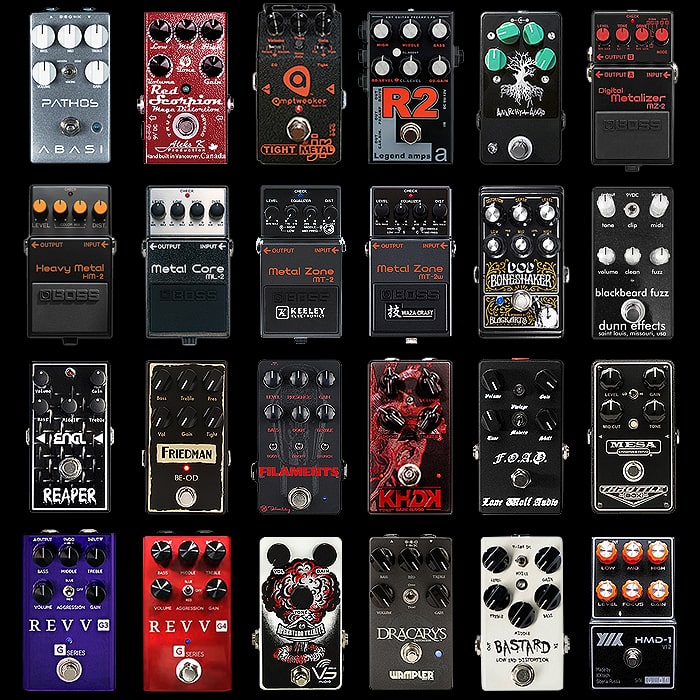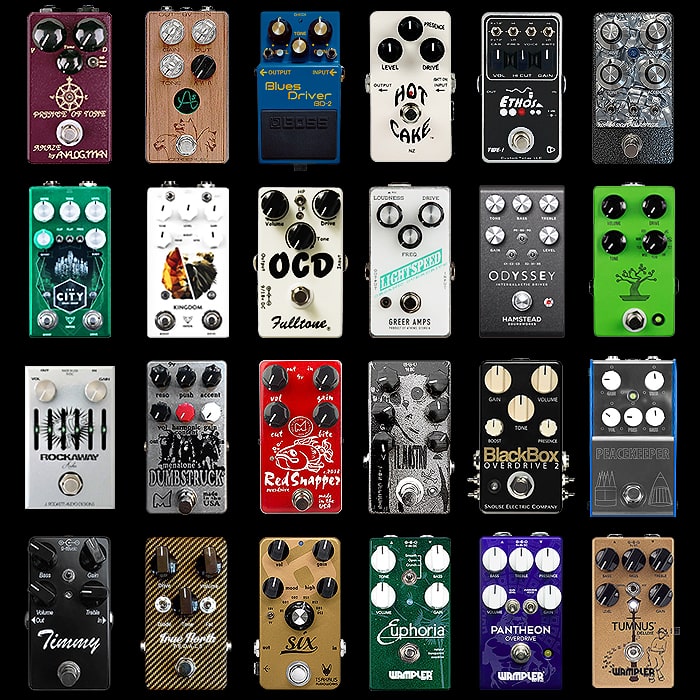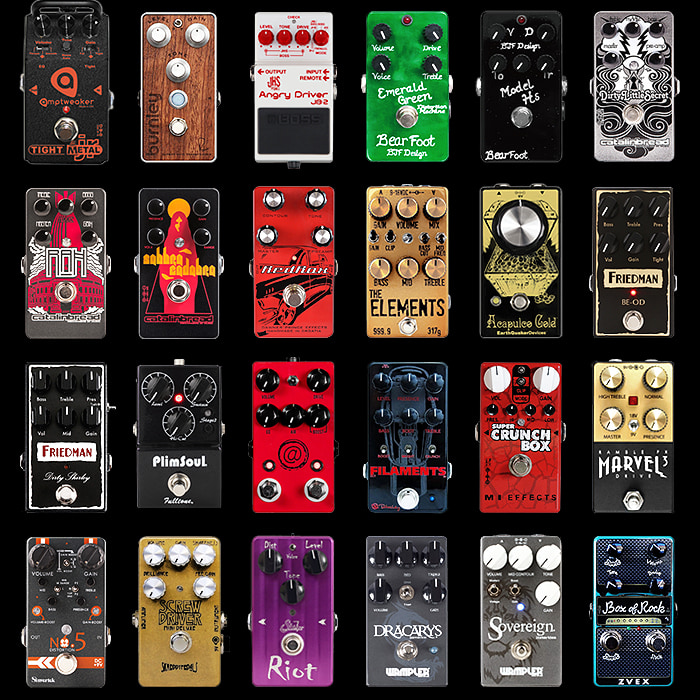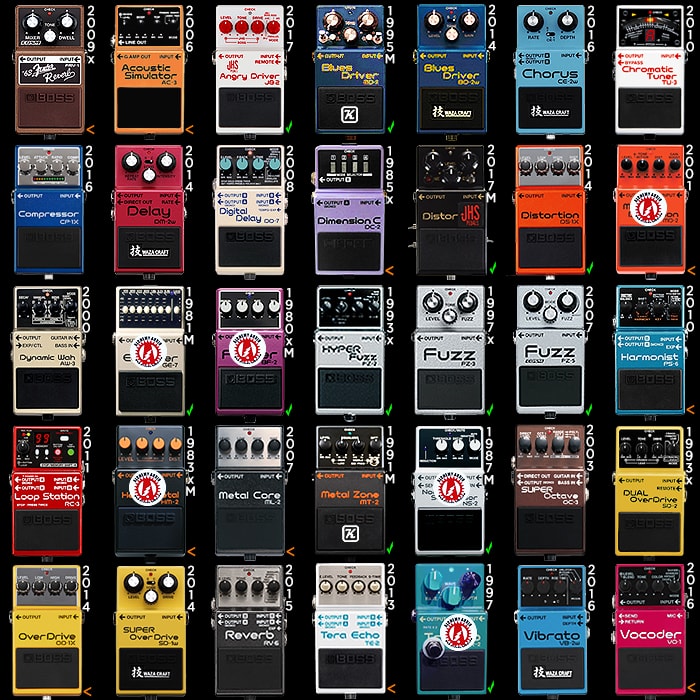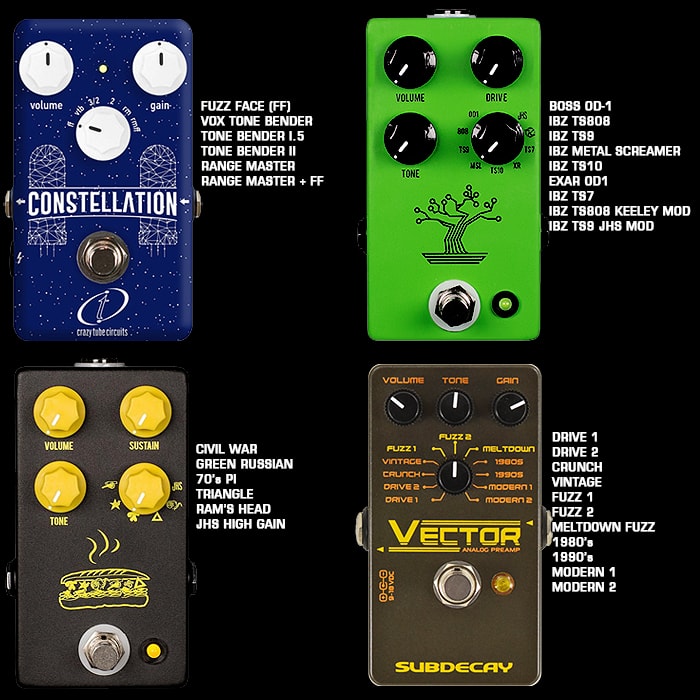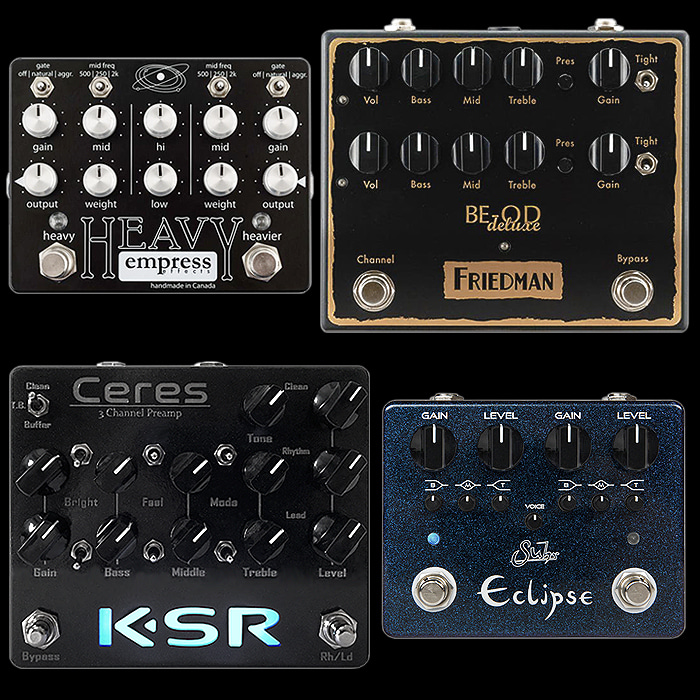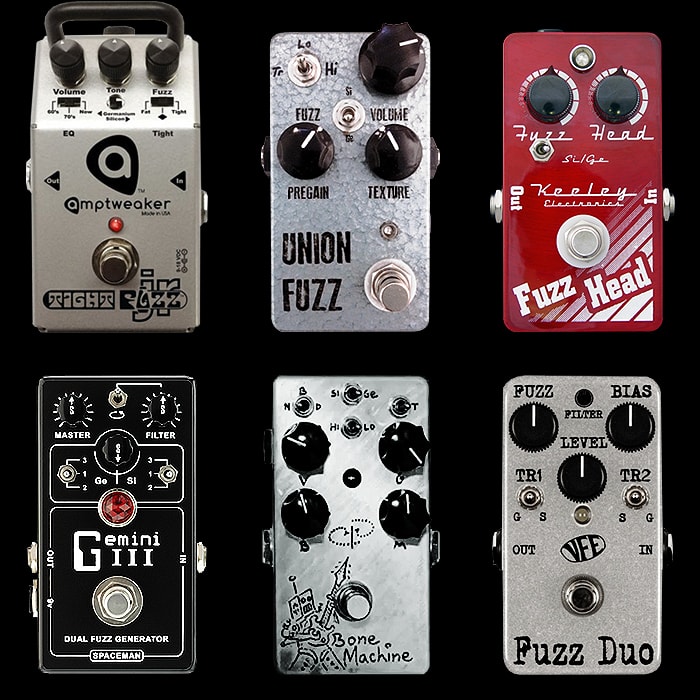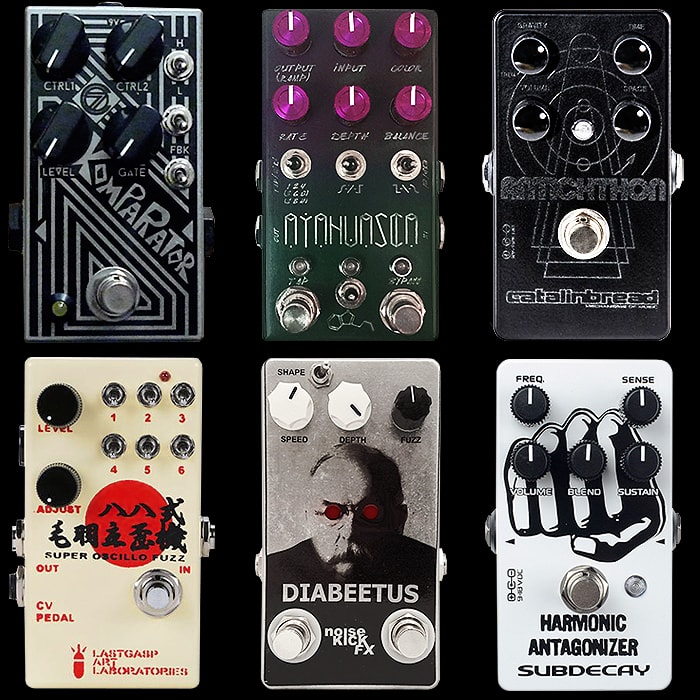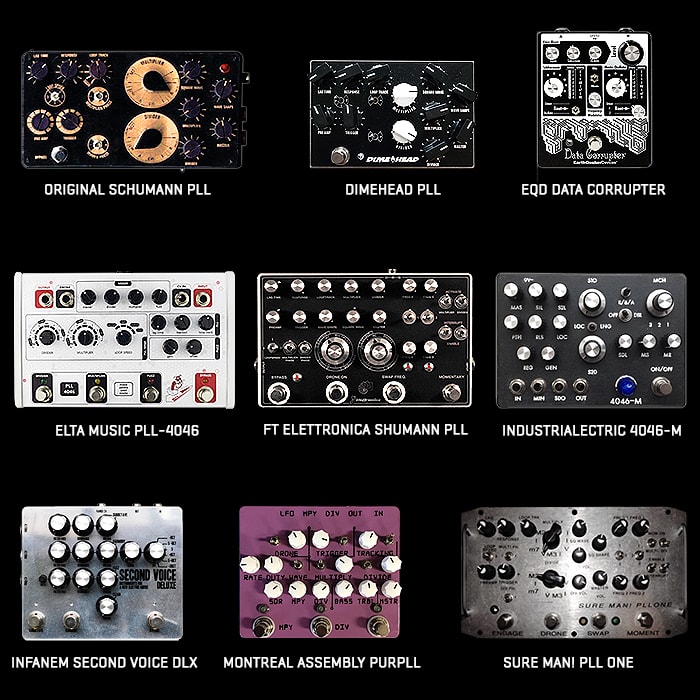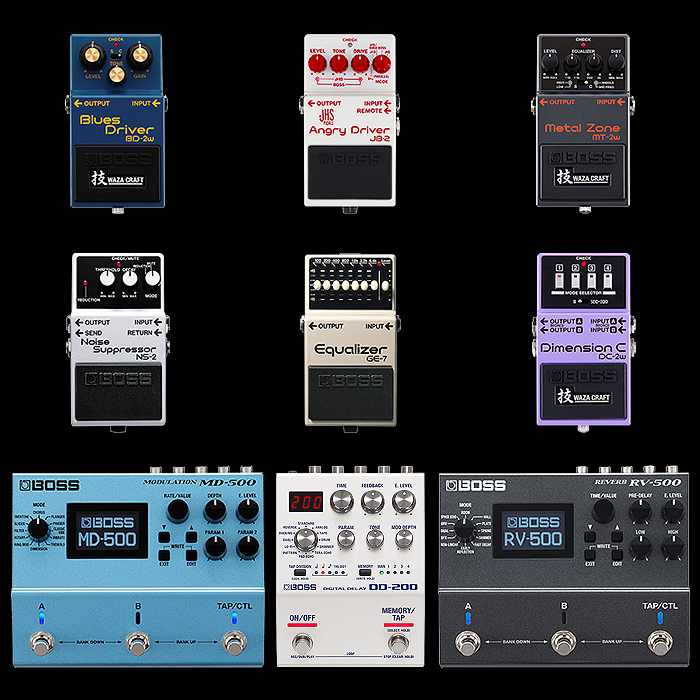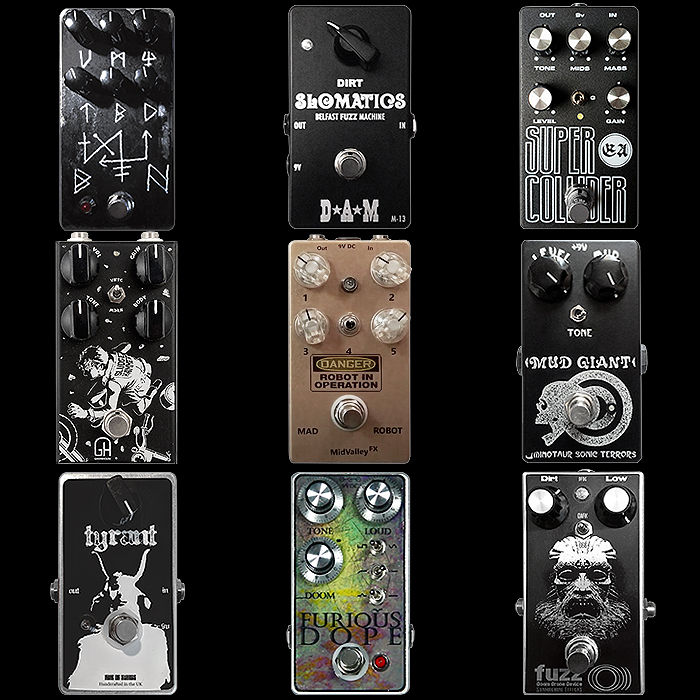Boss HM-2 Heavy Metal Pedal Considerations and Alternatives
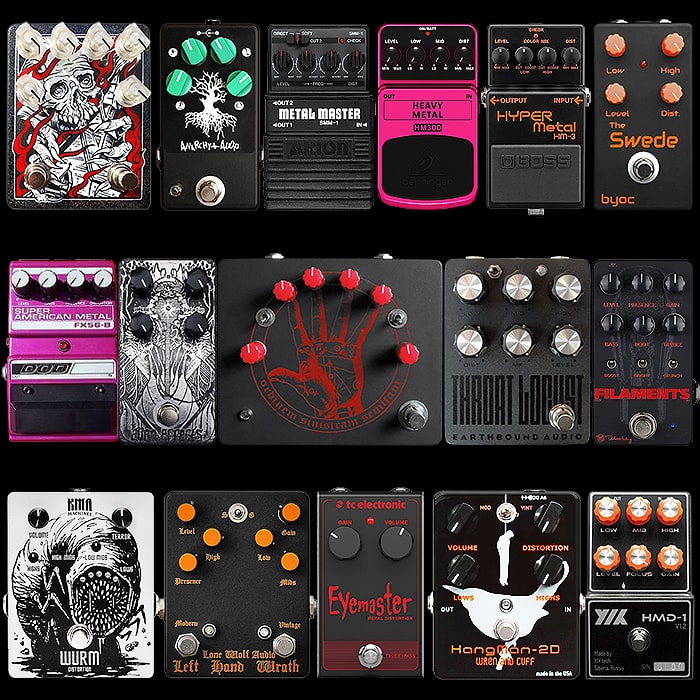
In the wake of the new and admittedly really cool Waza Craft Edition of the Metal Zone - the MT-2w, there were nonetheless lots of Boss fans who were super surprised that Boss had seen fit to do a Waza edition of a pedal that has been in continuous production since its release in 1991, versus the long-discontinued cult favourite HM-2 (1983-1992) which is likely its most popular pedal on the second-hand market, and which likely also has the most number of clones in that marketplace.
The HM-2 is most famously the signature ’buzzsaw’ sound for Swedish Death Metal - as originated on Entombed’s debut album ’Left Hand Path’ in 1990. The principal component of that sound was the Boss HM-2 pedal with all controls fully dimed, but there were of course nuances as the guitars were triple-tracked also as follows:
Entombed used Ibanez X-series guitars with EMG pickups into a Peavey Studio Pro 40W Combo Amp. Two guitars using HM-2’s were double tracked as such and panned left and right, while a third guitar using a Boss DS-1 was fully centered within the soundstage - to overall produce that textural wall of sound. The Peavey Studio Pro Amp was ’busted’ shortly after the completion of the recording, meaning that Entombed used a Peavey Bandit for their remaining albums - while preserving the arrangement of the other core tone-shaping elements.
A whole variety of Swedish metal bands then sort of ’borrowed’ this tone and it created its own ’Swedish Death Metal’ genre. The HM-2 circuit is pretty close to the Shin-Ei Companion Fuzz FY-2 - which accounts for the top-end fizz of the pedal that its critics don’t like. Several companies have made it their mission to tame or improve the HM-2 circuit, and since Boss hasn’t done anything about it itself - it’s kind of fair game that there are so many different Clones, Modifications and Alternatives of this pedal available.
For most connoisseurs of this pedal there is no substitute for a mint condition Made-in-Japan version - which have mostly been snapped up already, or retail for several hundred dollars / pounds when they occasionally materialise. There are still a number of metal bands keen on this sound - so any half-decent second-hand versions get snapped up pretty quickly.
It’s not only Death Metal though that the HM-2 is relevant for - as several Shoegaze and Stoner Rock bands also layer up said pedal and apply extreme amounts of delay and reverb for their own particular flavours of ’Wall of sound’. All in all and despite its many detractors, the HM-2 still remains a pretty well-loved and essential pedal, with quite a number of diverse serving and usage suggestions. I have looked at Alchemy Audio modified versions before, as well as considered several of the ’clones’. In fact this article was triggered by the reaction to the MT-2w release, as well as my coming across the rather cool looking Russian-made XIX Tech HMD-1 pedal on Reverb.com - which I fancy I will snap up before long!
Pedals are listed alphabetically by brand as usual.
Ola Englund Shows you how to achieve the Swedish Death Metal Sound
Yup - as mentioned in the intro - it's all dials on full - traditionally on top of / directly into a clean solid state amp, but can really be layered up with as much gain as you can stand!
I've tried to include all the usual suspects in the above visual, but could not always find reasonable imagery for some of the discontinued models - so I will list those I missed out after the individual pedal mentions. I've tried to be as inclusive as possible, but inevitably I will have missed some out. I you think I've overlooked one of the more important ones here - please let me know!
Abominable Electronics Throne Torcher - $195
A great sounding and well-respected HM-2 clone with one more knob in its latest iteration version - the second footswich is for extra LED clipping - which really acts as a sort of boost, the top knobs used to be Lows | Mids | Highs, then Volume | Distortion - I believe the additional knob in the top row now makes it Lows | Low Mids | High Mids | Highs - definitely worth considering - Abominable are also responsible for the well-loved and very heavy duty Hail Satan fuzz.
Anarchy Audio Deadwoods - c£125 (Reverb.com)
This 4-knobber is billed as an HM-2 / Shin-Ei FY-2 clone - it sounds suitably buzz-saw-y - perhaps slightly more of a fuzz flavour than the original HM-2 but pretty great sounding and fairly close nevertheless.
Arion Metal Master SMM-1 (discontinued) - c£75
Another relatively low cost plastic alternative to the HM-2 - often gets put in a head-to-head with the Behringer HM300. Each of these has its followers and your mileage may vary, although the consensus is generally that the Behringer gets you slightly closer to the original.
Behringer HM300 - £17
This is likely the lowest cost clone of the HM-2 you will ever get your hands on - and yes is entirely made of plastic! Arch budget cloner Behringer certainly has plenty of detractors, while there are several players who claim this comes close enough to the HM-2 to be viable - you may just need several backups though if you intend to gig with this.
Boss Hyper Metal HM-3 (discontinued) - c£50 (Reverb.com)
The supposed replacement for the HM-2 that lasted from 1993 to 1999, and slightly adjusts the mid-range-frequency character of the original - pitching it up a touch to my ears. It seems most though prefer the tone and texture of the original as that still remains the more popular pedal. The HM-3 does have its fans too though, and you can run it pretty close to the HM-2. Also for the more budget conscious - there does not seem to be as much of a demand for these - so you can usually get decent examples for relatively low outlay.
BYOC The Swede (DIY Kit) - c$86
This is the one kit pedal I've included in this overview - I'm very familiar with BYOC and their clones are usually top quality / proximity. There are a number of other kits out there too, and a number of smaller builders make their own particular flavour of HM-2 clone. If you're prepared to do the work here - BYOC is often a great route to acquiring some of those more rarified pedal types.
DOD Super American Metal FX56-B (discontinued) - c$70 (Reverb.com)
Not specifically an HM-2 clone, but one of the pedals that is frequently included in these HM-2 roundups / shoot-outs. Many find that this pedal gets them close enough to that core tone and texture, but opinion is slightly divided. There don't seem to be that many of these pedals around - so it largely depends no whether you can find one in sufficiently reasonable condition to make it worthwhile.
Dunn Effects Hierophant HM-2 - $165
A supposedly exact replica of a Made-in-Japan HM-2 by Matthew Dunn - in a beautiful acid-etched standard 4-pot enclosure. It's at a relatively reasonable price and seems readily available - so probably a good option for some here.
Dunwich Amplification Modded HM2 - $220
Small-batch production highly regarded builder of one of the best received HM-2 clones sometime available. These are made in relatively small batches which usually sell out pretty much immediately. The combination of 6 dials and 2 clipping toggle switches gives you a lot more versatility than the original, but you do sacrifice quite a large footprint. There's no doubting how great these pedals can sound, they're a touch large for my preferences though - but possibly make sense if this is your one main distortion pedal!
Earthbound Audio Throat Locust - $175
These are made-to-order with a lead time of 2-3 weeks - but versions do occasionally turn up on Reverb.com too. This medium enclosure HM-2 clone features 6 dials - with a parametric Mids - centre frequency plus cut/boost - for significantly more versatility than the original. This is a pretty decent alternative as far as I'm concerned.
Keeley Filaments - £179
This is most definitely not an HM-2 clone, but has a significantly dark tonal character / profile which I find really well suited to HM-2 -style tones. The Filaments is a really smart compact pedal with 6 dials and 3 voicing switches for superb all-round flexibility. It's kind of an outlier here but is a valid and viable alternative - with quite a bit more on-tap besides. I still keep intending to add one of these to the collection but for some reason it has not happened yet!
KMA Audio Wurm - £199
A great modern alternative to the HM-2 with additional Low Mids and High Mids dials for more precise and versatile tone-control. KMA have a stellar reputation and pretty much all their pedals sound great - if you're going for a mid-size HM-2 clone then this is likely one of the front-runners - there are though versions with dual footswitches for extra clipping / boost levels - so you need to factor than into your evaluation.
Lone Wolf Audio Left Hand Wrath - $250
This is another of the more celebrated clones which keeps on being improved upon - and has twin footswtiches here for distinctive Modern and Vintage voicing modes as well as a 3-way Silicon/Germanium clipping mode toggle. Lone Wolf also do a larger enclosure Deluxe version with additional blend and parametric tone controls. Much like Dunwich Amps - these are small-batch productions which sell out very quickly.
TC Electronic Eyemaster - £29
This is the other really low-cost HM-2 clone and it takes it for granted that both High and Low frequencies are dimed so those are internally fixed - giving you just two controls for Gain and Volume. If you are a fan of minimalism there are in fact a few HM-2 clone pedals out there which only have the one dial! This is a reasonable clone - slightly more treble-y and fizzy than the original, but for many players close enough for the price - and in a decent high-quality enclosure. Overall I kind of prefer the tonal characteristics and control over the other TC Electronic Metal Pedal - the Fangs, but this was one was specifically developed to deliver that HM-2 buzzsaw sound.
Wren and Cuff HangMan-2D - $250
Another mid-size enclosure featuring just the standard 4 pots, but with a Modern/Vintage clipping voicing toggle switch. I sort of feel that if you're going with a medium-enclosure you need to make proper use of that real-estate with additional knobs and switches - so part of me feels that there are more clever alternatives available at this size and price-point - although there's nothing wrong with how this one sounds really.
XIX Tech HMD-1 - £167 (Reverb.com)
And then this is the pedal that was the main catalyst to this post - Russian-built and available via Reverb.com - it has sort of parametric mids on it which make it a very formidable HM-2 clone - particularly at this more compact size. Of all of these, this is the one I would most likely pick up as a specific HM-2 clone, while the Keeley Filaments in my opinion gets you plenty close enough and does quite a bit more for not a lot more! I will probably end up with both of these eventually anyway.
Further Notable / Honourable Mentions
I really tried to squeeze in as many as I could in the above visual, and leaned towards the more current and readily available models. As I intimated in the intro there really are a lot of these HM-2 clones especially privately built and modified - and I thought I might keep a running list of further alternatives and additions here.
The ones that follow are a mix of custom-ordered and discontinued, but still very viable pedals if you can get your hands on an example:
- Anarchy Audio Bloodwork - HM-2 plus TubeScreamer Clone - 7-pot large enclosure pedal with dual footswitches
- Digitech Death Metal - Standard 4-pot compact enclosure
- Dunwich Amplification HM-C Heavy Metal Chainsaw - Single-pot compact enclosure pedal
- Dunwich Amplification Lady Baphomet - 4-pot medium-enclosure pedal with clipping toggle switch
- Dunwich Amplification Nihilist - Highly reductive large enclosure pedal with just 2 footswitces
- Enormous Door LHP - A 6 pot medium-sized-enclosure with added Presences and Mids dials
- Idiotbox Dungeon Master - Standard 4-pot compact design
- MAK Crazy Sound Technology Orthodox - 5-pot large enclosure pedal
- Mammoth Machine Coffin - Single-pot compact pedal
- Rocktek Metal Worker - Standard 4-pot compact enclosure pedal
- Sleeping Dog HM2 Clone - a 5 pot medium-sized-enclosure with added Mid control
- Walrus Audio Red - 5 pot medium enclosure pedal with additional Mid control and Texture voicing toggle
Final Thoughts
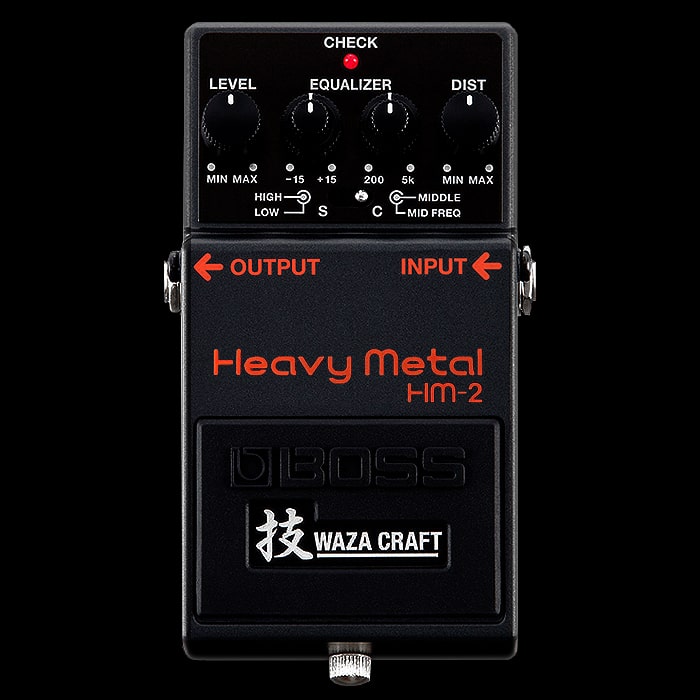
I have mocked up above what most people were expecting to see Boss launch last week - i.e. an updated HM-2 Heavy Metal Pedal with the EQ section borrowed from the Metal Zone. Most of the sought-after clones have some sort of six-pot configuration with either High and Low mids, or Parametric Mids / Mid Frequency Focus. Surely Boss can see the level of demand there still is for this pedal?
Most will already know - I have something of a phobia for over-sized pedals and if you can do a Chase Bliss on it and compact it - then that's the way to pique my interest. For instance the Dunwich Modded HM2 really is just too big for my liking - but if it is to stay that way, then by all means drop in a couple more footswitches so you can easily switch-in some of those alternative clippings / voicing - to make proper use of the larger real-estate.
Of all those featured my favourite 'clone' here is probably the recent-ish XIX HMD-1, while I'm probably more likely to get the near matching but much more versatile Keeley Filaments first. Of course - if Boss already had the pedal out that I pictured above, there wouldn't be too much of a contest as to who my favourite to the incumbent HM-2 was, is or would be!...

